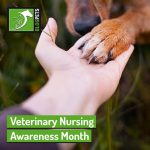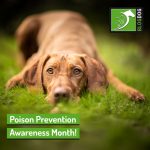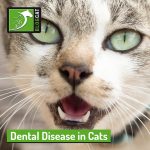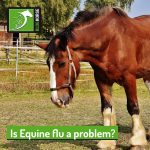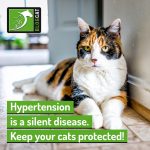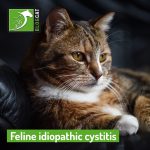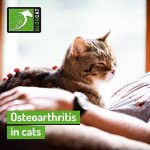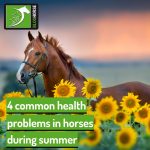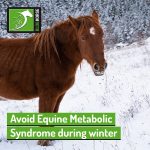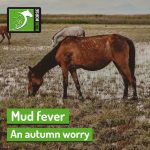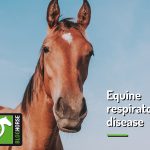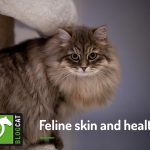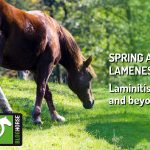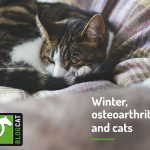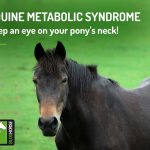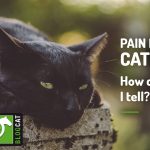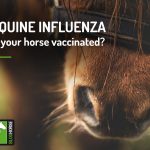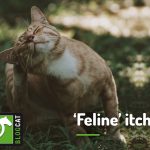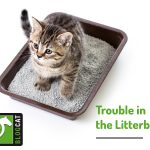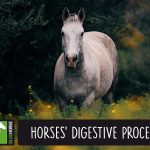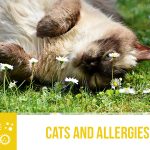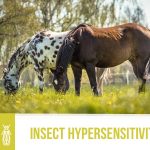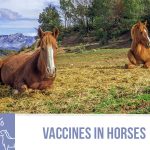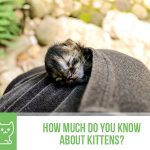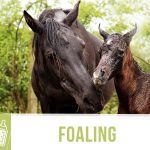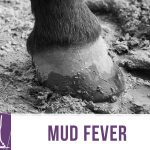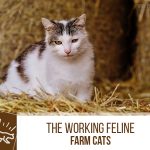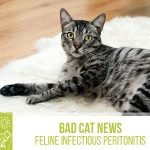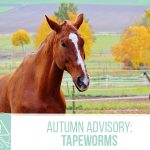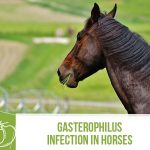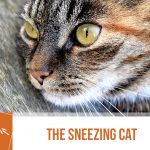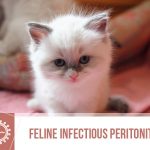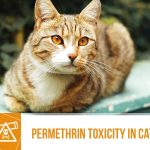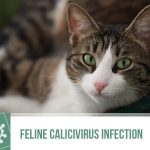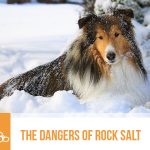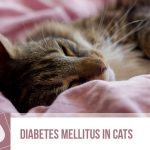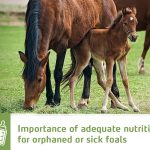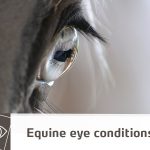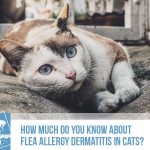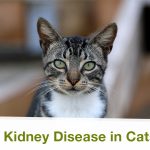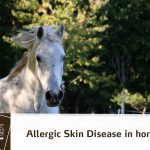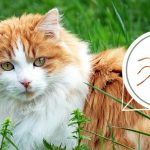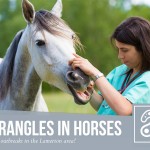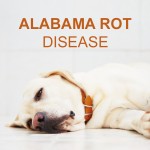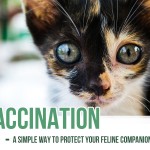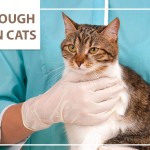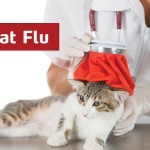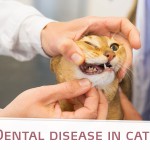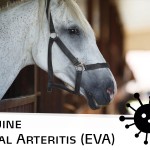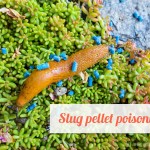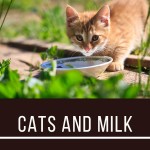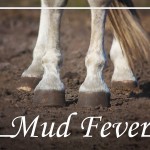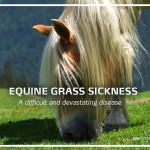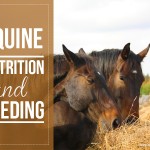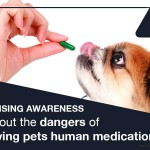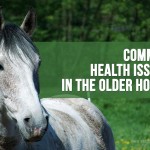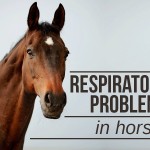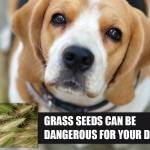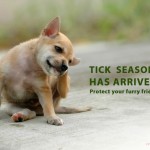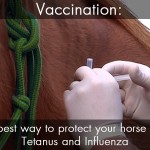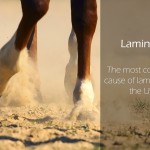The Pet Professionals Blog
Welcome to The Pet Professionals blog. Our aim is to keep pets happy and healthy through informed education of responsible owners who demand the best for their companions.
View articles by category:
|
Cats |
Dogs |
Horses |
The Pet Professionals |
Just like us, our pets go through different life stages, and as they grow older, their needs begin to change. Senior Pet Month is a wonderful opportunity to celebrate the companionship our older pets bring while also focusing on how we can best support them in their later years.
Whether your dog is slowing down ...
Read more >Published 14 Nov 2025
As Halloween becomes increasingly popular across the UK, more of us are joining in the seasonal festivities, from trick-or-treating to dressing up and decorating our homes. While it's a fun time for families, Halloween can bring a range of hidden dangers for pets. By understanding what to look out for, we can ensur...
Read more >Published 07 Oct 2025
Grass seeds are the seed heads of various types of grass, commonly found during the summer months, particularly in areas with tall grass, meadows, and woodland. While they may appear harmless, they can pose a serious risk to dogs.
These tiny, barbed seeds are spread easily, which means that they can often become...
Read more >Published 04 Sep 2025
Lungworm (Angiostrongylus vasorum) and its dangers
It can be so easy to hear and yet not hear, 'have you wormed your dog against lungworm?' Yet another parasite that it almost becomes boring. In this article, we aim to briefly cover why it would be worth considering adding protection against this parasite to your re...
Read more >Published 11 Jun 2025
Did you know that May is Veterinary Nurse Awareness Month? A chance to celebrate and draw attention to the wonderful nurses that help veterinary practices deliver essential care to your pets. Their role has diversified so much since 1961, when the RCVS approved the first Animal Nursing Auxiliary training program. ...
Read more >Published 16 May 2025
As the Easter period approaches, the kids start getting excited, the spring flowers are in full bloom all around us and the days are a little bit brighter for longer. The dark days of winter begin to be a thing of the past, and soon enough the holiday period of chocolate, hot cross buns, egg hunts and arts and craf...
Read more >Published 14 Apr 2025
This time of year is glorious; buds are beginning to appear on trees, the odd crocus is starting to pop up from the ground, and the sun is beginning to show its face more. The days are longer, and everything is starting to feel a bit lighter after the darkness of the winter months.
It is also the time of year wh...
Read more >Published 24 Mar 2025
Did you know that February is Pet Dental Health Month?
Dental disease is one of the most common medical conditions seen by vets. Cats, in particular, are very stoical by nature, so they very rarely show symptoms of dental disease; however, researchers have found that over half of all cats over the age of three have ...
Read more >Published 01 Feb 2025
With 2025 in full swing, its time to consider your pets preventative health! There are many things, like vaccines, flea and tick treatments or dewormers, that can help keep your furry friends in excellent health.
Routine appointments are also a cornerstone of preventative care, as they allow your vet to chec...
Read more >Published 21 Jan 2025
Winter is now definitely with us! With the colder days and dreary weather, its time to take a close look at our feline friends and the ways the lower temperatures might impact them at this time.
Cats are better suited to warmer days than cold, which means you need to remember a couple of things to ensure that ...
Read more >Published 09 Dec 2024
Have you ever considered what the hustle and bustle of the holidays feels like for your pets? This is especially important during Christmas, when things at home are usually the most chaotic.
While Christmas might still seem a little time away, knowing how to prepare adequately can help spare your pets a lot of s...
Read more >Published 13 Nov 2024
Did you know that your cats love routines? They are animals that love stability, predictability, and home comforts, preferring to know more or less how each day will go rather than constantly changing their routines.
This is often an issue that comes up at the end of the holidays, when summer household rhythms a...
Read more >Published 30 Sep 2024
Did you know that its not just pets in hot cars that can suffer from heatstroke?
According to a recent veterinary report, there has been a fivefold increase in heatstroke cases during June and August of 2022, with pets sadly passing away in one in four of these cases. Is this a result of global warming?
Kee...
Read more >Published 31 Jul 2024
As of June 2024, cat microchipping has become compulsory for cats in England!
A microchip can be an invaluable tool to help your pet find his or her way back home and it is very simple and painless to implant. This way, someone with a chip reader (for instance, a vet or the local council) can quickly find your c...
Read more >Published 09 Jul 2024
If you are yearning for some outdoor adventures with your dog this summer, our blog post is for you!
Walks in the countryside can be great fun, but it's important to be mindful of grass seeds as these can lead to many problems!
Keep reading to learn more about grass seeds and how to keep your dog away from tr...
Read more >Published 19 Jun 2024
With holidays just around the corner, now is a great time to check on the arrangements for your cat during the time that you will be away.
Have you considered whether your cat will be happier with an in-home sitter or in a cattery? If so, do you have any trustworthy recommendations? Will your cat need any special ...
Read more >Published 27 May 2024
How much do you know about canine heart disease? One of the most common forms of heart disease in dogs is dilated cardiomyopathy (DCM). This means that the heart chambers are enlarged, making it harder for the heart to work properly and send blood to where it needs to be.
As a progressive disease, as soon as you...
Read more >Published 06 May 2024
As we mentioned in our last Equine blog, horses and donkeys are amazing companions! They support us by giving us unconditional love, helping us with farm and transportation work, and can perform as outstanding athletes in various types of competitions.
As with all other companion species, the Five Freedoms are a...
Read more >Published 18 Apr 2024
If this is your first time owning a cat, especially if you've been a dog owner of a breed with considerable grooming needs, you might be asking yourself: Does my cat need to be bathed regularly?.
Domestic felines descend from wild cats of dry, warm climates and are not known for appreciating water very much....
Read more >Published 03 Apr 2024
Adopting a dog from abroad seems to be a rising trend in the UK, with 6% of owners asked by the PDSA in 2022 and 2023 reporting that their pet was imported compared to 4% in 2021 and 3% in August 2020.
If youve fallen in love with a dog from overseas and are considering bringing it back into the UK, keep readi...
Read more >Published 18 Mar 2024
Though there's no such thing as a recipe for equine happiness, there are some basic ingredients that need to be in the mix! These include adequate health care, gentle handling, balanced nutrition, and an environment that allows for quality interactions and all the opportunities required to express their natural beh...
Read more >Published 26 Feb 2024
One of the most common illnesses that can affect your furry friend is feline herpesvirus infection!
Also known as feline viral rhinotracheitis (FVR), this disease is a frequent infection seen in cats, and symptoms vary from mild to more severe.
If youve ever seen your cat with a runny nose, persistent eye d...
Read more >Published 05 Feb 2024
Osteoarthritis is a common problem for dogs, particularly elderly pets. This disease happens due to progressive inflammatory destruction of the cartilage in the joints, leading to worsening mobility and pain.
Unfortunately, this condition does not have a cure in most cases, but there are many ways to slow down t...
Read more >Published 16 Jan 2024
Have you heard of Equine influenza? Also called Equine flu, this highly infectious disease affects the respiratory system of horses and donkeys, and it can quickly make itself at home in your yard!
These strains of viruses exist all over the UK, sometimes causing outbreaks that have forced many equestrian events...
Read more >Published 04 Jan 2024
Fireworks and pets are not a good match! Many of our furry friends are apprehensive or scared of the loud noises during the festive season, and cats are no exception.
Christmas and New Year can be tough periods for cats with these types of phobias, and owners might struggle to help their feline friends feel bett...
Read more >Published 30 Nov 2023
Have you noticed your dog shaking their head more than usual and constantly scratching their ears? This often means that they have an ear infection and need to be seen by a vet.
Keep reading to find out more about ear infections and what you can do to prevent them.
What is an ear infection?
Ear infec...
Read more >Published 08 Nov 2023
Internal parasites in horses are everywhere, and sooner or later, your animals will find themselves infested with one of the many species of worms that are prevalent in the UK. These can cause a lot of problems such as gastrointestinal discomfort, weight loss and might even migrate to other organs, increasing the r...
Read more >Published 19 Oct 2023
Did you know that feline mammary cancer is one of the most common cancers in cats over the age of 10? Mammary tumours are common in domestic cats, and most of them are malignant, meaning they can grow and spread to other organs like the lungs, liver or kidneys.
Unfortunately, most of these will be fatal without ...
Read more >Published 02 Oct 2023
Back-to-school blues are not just for people! Did you know that dogs can also feel sad when their owners are no longer in the house?
While many dogs might feel a bit gloomy about having the house all to themselves, some pets will feel it especially acutely, which can tip into significant separation anxiety. Dogs...
Read more >Published 07 Sep 2023
Have you ever heard of Equine Cushings disease? If your horses or ponies are over 10 years old, they might be at risk!
This progressive hormone problem originates from a dysfunction in a part of the brain called the pituitary gland, causing an out-of-control increase in several types of hormones. Due to this s...
Read more >Published 21 Aug 2023
As the temperature rises, keeping a close eye on our senior cats is essential! When hot days arrive, its easier for our older feline friends to lose more fluids than normal, and if they arent given enough encouragement or opportunities to drink more water, this situation can quickly tip into severe dehydration....
Read more >Published 02 Aug 2023
How much do you know about ringworm in dogs? This infectious skin disease is also called dermatophytosis, and it isnt actually caused by a worm but by a fungus that our pets can easily pick up and bring home!
While it is not often a life-threatening problem, in some circumstances, it can be challenging to get ...
Read more >Published 20 Jul 2023
Summer is here, and it usually means it is time to take a break, relax and enjoy the weather!
If you often include your pets in your summer plans, keep reading our blog to make sure that they are kept safe and protected against common hazards.
Heatstroke
Heatstroke had to be first on our list as it i...
Read more >Published 03 Jul 2023
If you have a horse with the tendency to gain weight easily, especially around the neck, then he or she might have Equine Metabolic Syndrome (EMS)!
This syndrome is caused by insulin dysregulation, and it affects your horse's ability to use blood sugar adequately, especially when he or she has access to feed or ...
Read more >Published 19 Jun 2023
High blood pressure, also called hypertension, is a common sign in older cats that can be caused by several important conditions, such as kidney disease or hyperthyroidism.
Unfortunately, high blood pressure can build for a long time without overt signs whilst damaging sensitive organs like the eyes or brain, so...
Read more >Published 05 Jun 2023
Summer is just around the corner! The time for those perfect days spent outside is almost here, but are you ready to tackle everything that the good weather has to offer?
Taking your dogs out with you to places with tempting water, like the river, beach, lake, or even a small pond, is a popular pet outing, but i...
Read more >Published 23 May 2023
Have you ever heard of chronic fatigue in horses? This problem can come from situations like overtraining, which can be a severe issue for your horses sporting career!
Training creates a lot of physical and mental stress that must be balanced with proper rest and recovery time to avoid fatigue. No matter how t...
Read more >Published 09 May 2023
Whether you have plans to travel with your pets this summer or you are planning on going somewhere without them, its best to start preparing now!
Arranging the needed documents, finding pet-friendly places to stay or trying to get a reputable boarding kennel or a pet sitter so that you can be away without any ...
Read more >Published 28 Apr 2023
Have you ever heard of feline idiopathic cystitis (FIC)? This common cat problem can show up without warning and you need to know the signs!
Many owners are familiar with feline lower urinary tract disease (FLUTD) as it can be caused by many problems such as bladder infections, bladder stones or urethral obstruc...
Read more >Published 13 Apr 2023
Equine Herpes Virus is a concern for horse owners everywhere, especially for working animals who travel and have a greater chance of contacting other infected horses or for yards which often bring in new horses.
This viral disease can cause debilitating respiratory or neurological problems and is highly contagio...
Read more >Published 31 Mar 2023
Did you know your dogs healthcare and other needs will change as he or she ages? A senior pet might need some changes around the house, specific food or even more frequent veterinary care.
All of these are part of the natural process of growing old, and meeting these needs is very important for their quality o...
Read more >Published 16 Mar 2023
As the weather becomes warmer and more inviting, the number of pet parasites like fleas, ticks and mites increases significantly. Fleas are almost ubiquitous, and all cats are at risk, even those that dont ever leave the house, as its very easy for us humans to bring them in from the outside.
Once you have a...
Read more >Published 01 Mar 2023
Cyathostomins are also called redworms, and they are one of the most common intestinal parasites in horses in the UK.
These parasites can cause severe issues in highly infested horses due to the mass migration of larvae from their burrows in the intestinal wall during early spring. This means that diagnosing, tr...
Read more >Published 22 Feb 2023
Have you ever considered that your dog might be suffering from allergies? If youve ever noticed he or she starts scratching and itching more at certain times of the year, it could be due to a sensitivity to certain things such as pollens or flea bites. In this case, its essential to seek medical help as this ca...
Read more >Published 01 Feb 2023
During the winter, do your bones and joints ache a little (or maybe a lot!) more? If they do, you are not alone!
Our cats can also suffer from increased joint pain due to the low temperatures and high humidity during the cold season. However, our feline friends are experts at hiding their pain and discomfort, an...
Read more >Published 19 Jan 2023
Horses are hardy animals, being able to handle cold and dreary days that would make the rest of us miserable.
However, they still have their limits and sensibilities, so to avoid unnecessary problems during the bad weather season, give your yard and routines a check-up!
Read on to learn about the best ways to...
Read more >Published 05 Jan 2023
Christmas and pets
For most of us, Christmas is a magical season, full of wonder and opportunities to reunite and spend time with those we love the most.
But when it comes to our pets, things can rapidly turn sour if were not careful so please do take some precautions!
Read our blog post to learn more about avoi...
Read more >Published 13 Dec 2022
Keep lilies away from your cats!
As the festive season fast approaches, we will likely start decorating our houses and receiving gifts from family and friends!
Flower arrangements are a beautiful way to kick off the Christmas season, but unfortunately, pet owners need to be careful when bringing some plant sp...
Read more >Published 30 Nov 2022
Sycamore toxicity happens when horses ingest the leaves and seeds of sycamore trees, which causes a potentially lethal problem called atypical myopathy.
Due to the unusual weather over the summer that has caused a boom of sycamore seeds, the British Equine Veterinary Association has sent out a warning for owners...
Read more >Published 08 Nov 2022
What do low temperatures mean for our dogs? As winter approaches and the need for warmer clothes, antifreeze and road grit comes about, so the amount of care you need to take with your furry friends increases.
Keep reading to learn how to navigate the coming season and keep your dogs healthy and safe.
Antifre...
Read more >Published 24 Oct 2022
The dreaded shedding season is here! If you share a house with a cat, or worse, several cats, you know that there is seemingly no way to eliminate the vortex of fur that comes from such a small pet.
Even though we cannot guarantee you will stop finding hairs all over the place, there are many ways to help your f...
Read more >Published 14 Oct 2022
Equine influenza, also known as equine flu, is a widespread viral infection in horses. The UK has experienced several outbreaks in the past decade, requiring strict quarantines to resolve, which means economic losses for horse owners who cannot participate in events or competitions.
While it is rarely fatal, it ...
Read more >Published 21 Sep 2022
Keep medications away from dogs
If your dog suddenly seems unwell, it can be tempting to give them medicine you have at home, but many of the most common medications humans use are toxic to our furry friends.
These include acetaminophen (Paracetamol), common anti-depressants and sleeping pills, amon...
Read more >Published 05 Sep 2022
Did you know that insufficient water intake can be a risk factor for urinary issues in cats?
Urinary problems are some of the most common health issues in cats, which is why making sure that your cats are drinking enough water is essential to keep them healthy.
However, our feline friends can be quite particu...
Read more >Published 22 Aug 2022
As weve mentioned in our previous blog post, horses are prone to several skin cancers, one of the most common being squamous cell carcinoma.
These tumours appear mainly in the skin, around the eyes, genitals and mouth due to overexposure to the sun and unfortunately they can quickly invade surrounding tissues....
Read more >Published 04 Aug 2022
Horses are prone to many cancer problems with Sarcoids, also known as fibrosarcoma, accounting for 40% of all equine cancers and are the most common form of skin cancer.
Keep reading to know more about this locally invasive problem and what it means for your horse.
How can sarcoids affect my horse?
Sarcoid...
Read more >Published 19 Jul 2022
Taking your dog with you on outdoor adventures is nothing new! As more beaches, lakes and even pools become pet-friendly, there is a big chance you will be out in places where your dog could go for a swim.
However, deep water, especially unpredictable water with currents or hidden dangers, is not to be underes...
Read more >Published 04 Jul 2022
Cats are very particular animals that enjoy the stability of their routines and can be pretty picky with the people they interact with.
As a parent or someone who frequently has kids visiting, you might be worried that your feline friend will not be too keen on having small, often loud and energetic humans in th...
Read more >Published 21 Jun 2022
Summer provides lots of opportunities to enjoy the warm weather with your horse, but it can also bring some health issues.
Here are some of the most common problems that horse owners might encounter this season and what to do when faced with them.
Dehydration
Dehydration can happen when a horse loses more wate...
Read more >Published 09 Jun 2022
As the sunny days of high summer are getting closer, we would like to take some time to talk about the damage the sun can do to our dogs.
Sunburn and skin cancer are just as significant in our pets as in people! Even if you and your dogs arent often out on lengthy outdoors adventures, its vital to protect th...
Read more >Published 03 Jun 2022
Do you know about Feline Lower Urinary Tract Disease? Also called FLUTD for short, this set of conditions is a common challenge for cat owners, and many of us have had direct experience with the problem.
The most important thing about FLUTD is that you should never ignore signs of urinary distress in your pets! ...
Read more >Published 12 May 2022
Strangles is a highly infectious equine disease caused by a bacteria called Streptococcus equi equi that causes severe abscesses in the neck area, high fever and nasal discharges.
This illness can quickly spread throughout your herd, and proper sanitary measures are required to make sure that it is contained and...
Read more >Published 25 Apr 2022
Did you know that there are over 3 million new pets in UK homes since the beginning of the Covid pandemic?
If you were one of the new pet owners, you might have struggled with proper socialisation. As we were spending more time at home and observing social distancing to help fight the spread of Coronavirus, some...
Read more >Published 13 Apr 2022
The number of cats that are kept indoors permanently has boomed in recent years as more and more people live in apartments or because owners choose to keep them away from dangerous traffic and potential altercations with stray animals.
Fortunately, cats can be terrific indoor-only pets, and they take to their sp...
Read more >Published 31 Mar 2022
Dangerous airborne viruses that can cause respiratory and neurological diseases are not just for humans. Equine herpes virus (EHV-1 and EHV-4) is a virus that has a worldwide distribution and is highly contagious, which means that your horses are at risk of being affected, especially if they travel extensively.
...
Read more >Published 25 Mar 2022
With the end of winter fast approaching, this is the perfect opportunity to plan some fun outdoor activities for spring!
Around this time of the year, youre also likely to see more dog hair around the house as your dogs shed their warm winter coat, so weve put together our top three tips to make sure that yo...
Read more >Published 09 Mar 2022
The most common question cat owners have is "Should I groom my cat?", especially if they are first time owners!
We all know that cats are pretty much self-sufficient when it comes to cleaning their fur and skin, but there are many situations where you'll need to intervene.
Keep reading to learn when and how t...
Read more >Published 16 Feb 2022
Winter is a difficult time for all of us, horses included! Keeping up with exercise when the weather is dreadful can be a chore, but it's vital for our equine friends' health.
With reduced exercise and increased confinement to smaller spaces, your horses have a risk of weight increase and even obesity. Due to gene...
Read more >Published 26 Jan 2022
Understanding our dog's behaviour can be challenging at times.
While a wagging tail greeting us when we get home is usually easy to interpret, there are subtle signs in canine communication that we may have difficulty reading.
In this article, we will go over some interesting facts on dog behaviour that ca...
Read more >Published 12 Jan 2022
With 2021 coming to an end, we would like to invite you to take a moment to reflect on how important your pets have been in your life this year.
They can really be our lifeline sometimes, providing us with moments of comfort, greeting us with contagious joy and making sure that we are never alone.
We are sure tha...
Read more >Published 28 Dec 2021
Digestion is a vital physiologic process, as it allows the nutrients in food to become available and be absorbed into the bloodstream, thus fuelling a horse's body.
As large, herbivorous animals, horses have a complex yet delicate digestive system, and any disturbances to their digestion can lead to health compl...
Read more >Published 15 Dec 2021
Halloween and Bonfire night are behind us, and we are all looking forward to the jolliest season of the year. As November settles in, we'd like to take a little time to remind you of the most common winter hazards that you may face with your dog!
Dogs are especially vulnerable to toxic substances like antifree...
Read more >Published 22 Nov 2021
With the weather getting colder, snuggling comfortably with our pets at home feels like the perfect weekend plan.
But even pets equipped with the best fur coat can feel the cold, so we should ensure that they remain comfortable as winter approaches.
That said, we've put together three tips to help your pets d...
Read more >Published 04 Nov 2021
Mud fever can be a challenging problem for horse owners during the wetter months of autumn and winter, requiring careful management of both the horses affected as well as their paddocks and fields.
This illness is caused by a bacterial infection affecting the lower portion of the leg due to muddy and wet conditi...
Read more >Published 20 Oct 2021
Food toys are some of the best toys for dogs, and its easy to understand why! They combine all the advantages of treat-motivated training sessions with stimulating physical and mental exercises that will keep your pet thoroughly entertained.
Puzzle feeders can be given to any dog, but they are also excellent a...
Read more >Published 13 Oct 2021
Dogs are intelligent animals, and mental stimulation is essential for them to lead a happy, and healthy life.
With the kids being back at school and the family spending less time at home, why not invest some time in teaching your dog a new trick?
Learning is a great way to stimulate your dog's cognitive abili...
Read more >Published 20 Sep 2021
As our pets grow older, they go through a significant number of changes. They may not enjoy moving as much, they may lose some sharpness to their senses, and they may suffer from chronic conditions such as kidney disease, osteoarthritis or diabetes.
Keeping an eye out for these changes is very important as our p...
Read more >Published 01 Sep 2021
Last Sunday was International Cat Day, a day created to celebrate our feline friends.
At The Pet Professionals, we believe all days should be 'cat days', so we're keeping the celebration going, and we're going to share with you our three top tips to help you enrich your cat's life.
#1 - Meeting basi...
Read more >Published 09 Aug 2021
Preventing injuries and illness is always better than treating them! If we had to point out a situation where this is especially true, it would be when it comes to hoof health in horses.
Hooves are fragile yet fundamental structures in equines, and many problems affecting the hooves are liable to evolve into sev...
Read more >Published 29 Jul 2021
Summer's here! For most of us, this means that it's time for a break and we can enjoy a few days of relaxing with the family.
If you're planning to stay local this year, this is the perfect opportunity to organise activities that include your four-legged friends.
With this in mind, keep reading our advice to ...
Read more >Published 13 Jul 2021
Has your dog ever growled at you for picking up their favourite toy?
Several situations and even medical conditions can cause a dog to be aggressive. Today, we'll be going over one of them, called resource guarding.
What sort of things may trigger resource guarding?
Some of the most common ...
Read more >Published 07 Jul 2021
Sun, relaxation and plenty of adventures are the biggest draws of the season!
But with all the nice experiences we can enjoy during the warmer weather, there are some concerns that pet owners need to keep in mind.
One of the most important ones is heatstroke and how it can be dangerous, even deadly, to your p...
Read more >Published 14 Jun 2021
Like any other animal, including ourselves, horses can suffer from a multitude of injuries that may result in open wounds.
Today, we're covering three important aspects to consider when facing wounds in horses that can help you be prepared for an unexpected situation.
#1 - Vet contact information
...
Read more >Published 02 Jun 2021
Throughout the years, there have been several developments in veterinary medicine, and with these, specialisation in different areas of clinical practice.
Just like human medical doctors, veterinary surgeons can choose an area of expertise that theyre keen on and pursue further education and training on the subj...
Read more >Published 19 May 2021
Have you noticed that your dog has been gaining weight despite eating the same amount of food, is less energetic, and his or her hair is thinning?
These are common signs of hypothyroidism, an endocrine disease of the thyroid gland that can affect dogs, especially after a certain age.
The thyroid gla...
Read more >Published 04 May 2021
Fun fact about horses' anatomy and respiratory system:
Did you know that whilst most other mammals, such as cats and dogs, have 13 pairs of ribs, horses usually have 18?
This means that their chest is longer, allowing it to accommodate a large set of lungs that have a capacity of around 55 litres, which is ni...
Read more >Published 19 Apr 2021
Spring brings us some of the best experiences of the year! The days start getting longer and warmer, and the dreary weather of winter slowly makes way for springtime bloom.
Even though there are still plenty of movement restrictions, the spring green and extra light make everyone a little more cheerful, even tho...
Read more >Published 07 Apr 2021
If there's one good thing that came out of this pandemic, it would have to be a strengthened relationship between ourselves and our pets.
Pets have provided us with an unparalleled source of company and support in these challenging times, which we believe to be related to the increased demand for pets that we've...
Read more >Published 26 Mar 2021
Equine grass sickness (EGS) has caused significant losses in the horse, pony and donkey population, especially in the UK, which is the country with the highest incidence of this terrible disease. As it has a 95% mortality rate and no known cause, this condition is of great concern to owners in affected areas.
...
Read more >Published 04 Mar 2021
What is so great about a cat?
There is no right answer to this question as there are so many facets of this species that fascinate us their independent nature, yet the strong bond that unites us, their elegant grace, yet their clumsy antics, their ruthlessness as predators, yet their gentle affection towards ...
Read more >Published 02 Mar 2021
Due to the current Coronavirus pandemic and associated government restrictions, our routines seem to be constantly changing. If we are finding this difficult to manage, imagine how confused our pets may be feeling!
Domestic animals rely on stable routines to thrive, which means that disruptions can cause them ...
Read more >Published 05 Feb 2021
January 2021, it's the beginning of a New Year, and if you're like most people who set New Year's resolutions, you're likely to have written down 'eat better', 'start exercising' or 'lose 2 kgs' on your list.
If you find these goals relatable, so do we, as it is well known that proper nutrition, an active lifest...
Read more >Published 25 Jan 2021
We can't help but have high hopes for 2021, and we wish this new year is kinder to us all than 2020!
Whether you are the type of person that likes to take a moment to reflect on the year that has passed and set resolutions and goals for the new one or not, we have a suggestion for you.
This year, why not make...
Read more >Published 05 Jan 2021
Finally, it is the week of Christmas, and we cant help but feel excited! It is true that this is not going to be the Christmas that we wished for, but we hope you still get to enjoy the holidays as best you can, and the warmth that characterises this season.
There are things that do not change, however, which ...
Read more >Published 23 Dec 2020
Recent surveys indicate that the demand for pets during the current Coronavirus pandemic has increased significantly.
Pets are, indeed, a great source of company and comfort during these unprecedented times, and pet ownership is one of the most wonderful experiences life has to offer us!
But as good as it is ...
Read more >Published 07 Dec 2020
November is Pet Diabetes Month!
Diabetes is a metabolic disease that can affect both ourselves and our pets.
The disease is caused by insufficient production of insulin, the hormone responsible for keeping blood sugar (glucose) levels under control, or due to cells becoming resistant to its action.
Accordi...
Read more >Published 20 Nov 2020
As winter is fast approaching, we would like to take some time to talk about our cats' relationship with the cold and the different ways that it can affect their comfort.
If we had to point out some of the most common features of our beloved domestic felines, we'd probably have "love warm spots to sleep on!" quite...
Read more >Published 05 Nov 2020
When we think of digestion, the first organ that usually comes to mind tends to be the stomach. However, all of the digestive organs are equally important to guarantee your horse's nutrition, and the digestive process starts in the mouth.
So, what should we keep in mind regarding our horses' oral health care?
...
Read more >Published 22 Oct 2020
Every season has its grace, and autumn has arrived bringing us shorter days, beautiful colours and a longing for cosiness and evenings by the fire.
Bringing some joy to this unprecedented year, autumn celebrations are fast approaching, so this is the perfect opportunity to go over some important pet safety preca...
Read more >Published 08 Oct 2020
Preventive medicine is the best way for us to keep our pets healthy, but, unfortunately, health is not something that we can always predict and control. Accidents can happen, and there are a number of illnesses that cannot be easily avoided, such as cancer and heart disease, for example.
But theres something w...
Read more >Published 28 Sep 2020
In part I, we focussed mainly on the importance of a balanced diet from a preventative perspective, as a way of keeping your pet healthy, but did you know that nutrition can also play a therapeutic role?
#4: My dog is overweight. Should I change his diet?
The most common cause for excess weight and ...
Read more >Published 07 Sep 2020
The summer sun brings serious summer fun! Our countryside walks are back in full swing, with all due distancing and safety precautions of course, and there is nothing better than taking our doggy friends for a day out near the lake or jog around the forest ponds.
However, before all of this awesome fun can start...
Read more >Published 28 Aug 2020
We are what we eat, and the same is true for our four-legged friends.
We can't stress enough how much a balanced diet is important for your pet's health, so we've prepared a Q&A for you with common questions dog owners have regarding their pet's nutritional needs!
#1: What should I feed my dog?
...
Read more >Published 13 Aug 2020
The heat is back on, summer is in full swing and horse owners are faced with a difficult challenge.
How do you keep up with exercise and work needs in this hot weather?
During this time, heat stress is a significant concern for all owners, and it's vital to keep monitoring your horse's hydration status and w...
Read more >Published 05 Aug 2020
For most people, when they bring a new pet home, one of the first thoughts that cross their mind is to take him or her to the vet to make sure that they are healthy.
If this is the first time you have owned a pet, even after you've done lots of preparation and research, that first appointment can be overwhelming...
Read more >Published 15 Jul 2020
Particular as they may be, cats have wonderful personalities and make great companion animals and furry friends.
However, sometimes cats can show aggression towards their owners and other pets, which can be very detrimental to the bond between them and the home environment, and even dangerous in extreme situatio...
Read more >Published 22 Jun 2020
With the beautiful weather weve been having lately, we feel this is the perfect opportunity to share with you our top three tips to help you enjoy Summer with your four-legged companions.
#1: Keep your pets protected from heatstroke
As usual, prevention always comes first!
Heatstroke occurs when your pet...
Read more >Published 10 Jun 2020
One of the most beautiful landscapes that spring has to offer us is a vast, luscious green pasture, with the sun shining up in the blue sky and the opportunity for our horses to graze freely and enjoy nature.
However, as horse owners are well aware, fresh spring grass is very sugary and, if you have ro...
Read more >Published 20 May 2020
April showers bring not only May flowers, but they also bring a lot of parasite concerns. Warmer weather invites all sorts of creepy crawlies into your garden and straight onto your pets (and family!).
Keeping your dog's flea and worm treatment up to date is essential all year-round, but during Spring, there is ...
Read more >Published 12 May 2020
Cats may seem to be whimsical pets who enjoy doing all sorts of random things (usually involving pushing fragile objects off the shelves!) but, the truth is, they are animals that rely on stable routines to feel confident and safe.
They like to know who will be home (and when), at what hours they can expect ...
Read more >Published 28 Apr 2020
With the UK in lockdown, it's essential that you, as a horse owner, know what to do to ensure your horse is properly cared for whilst keeping yourself safe and complying with the government's recommendations.
Attending to your horse's basic needs is considered essential and, therefore, allowed. However, this means...
Read more >Published 09 Apr 2020
After COVID-19 was characterised as a pandemic by the World Health Organisation on 11 March, it is now more important than ever that we protect ourselves and help everyone else at the same time.
Basic preventive measures against the virus include:
Washing your hands frequently for at least 20 seconds;
Avoidi...
Read more >Published 23 Mar 2020
There have been several reports from vets across the country of an increase in cases of prolific vomiting in dogs.
As you're aware, there are many diseases that can cause vomiting and other gastrointestinal signs in dogs, including parvovirus enteritis, parasites, intoxications and dietary indiscretions, to name s...
Read more >Published 02 Mar 2020
Strangles, also known as Equine Distemper, is an infectious disease that all horse owners should be aware of. It's caused by a highly contagious bacteria from the Streptococcus equi equi species that can be found all over the UK.
This disease can be easily transmitted through contact with infected animals or conta...
Read more >Published 05 Feb 2020
Have you had a look at your cat's teeth lately?
It may sound like a weird question, but given that oral disease affects up to 80% of cats from only two years of age and as it can be easily overlooked, it is a really good idea to keep a close eye on your cat's mouth!
February is pet dental health month, so we ...
Read more >Published 31 Jan 2020
With 2019 behind us, many of us have probably taken a moment to reflect on what we've accomplished and to set new goals for 2020. Every new year comes with the promise of a fresh start, and if you don't usually include your pets in your resolutions, why not ring the changes and give it a go for 2020?
#1: Protec...
Read more >Published 06 Jan 2020
Owning a pet is a wonderful, gratifying experience but also a big commitment. Once you adopt or buy an animal, you become responsible for their health and well-being, which goes far beyond taking care of their basic needs.
Preventative veterinary care, such as proper nutrition, vaccination and regular worming an...
Read more >Published 19 Dec 2019
With the cold weather settling in, we tend to see our pets enjoying longer naps and not seeming as interested in going outside for their exercise as usual. Even though the poor weather can be a significant contributor to this change in their disposition, it is important to make sure that your cats are happy and hea...
Read more >Published 27 Nov 2019
Is a dog a good gift idea?
While Christmas is still a little far off, its usually at this time of the year that we start pondering on what the season will look like, how we are going to avoid having our pets steal some treats when no one is looking and also, what gifts to give to everyone!
Some of the classic C...
Read more >Published 12 Nov 2019
Bad weather can be a real nuisance for horses as it usually means less time spent grazing, galloping and just simply enjoying being out in the field with their friends.
As a result, they can become bored and stressed, which can lead to negative repercussions in their behaviour and health.
The good news is the...
Read more >Published 07 Nov 2019
Autumn has arrived in earnest and with it comes the fireworks season. As much as we love the festivities, some of our pets might not feel the same way!
Halloween, Diwali, Bonfire night, Christmas and New Year all come at us in quick succession and many of these holidays feature fireworks of some kind, which are ...
Read more >Published 14 Oct 2019
Autumn is one of the most beautiful seasons of the year, with the trees changing colour and the leaves falling, that lovely earthy scent that lingers in the air after rain, and that characteristic early morning and late afternoon chill that starts making its presence, inviting us to stay home snuggled with our pets...
Read more >Published 03 Oct 2019
Equine Metabolic Syndrome
Equine metabolic syndrome (EMS) is a major metabolic disorder in horses, and it is characterised by the deregulation of several metabolic processes, chiefly the proper use of insulin. This situation might cause severe laminitis, and it is one of the main weight-related issues in...
Read more >Published 19 Sep 2019
Pain is an unpleasant sensation that is common across species.
When we feel pain, we can easily tell where and how much it hurts, but it is not the same for our feline companions.
Cats are well known for their stoic nature and will go out of their way to make sure everything is normal. Even more so in cases o...
Read more >Published 02 Sep 2019
Now that the holiday fun is over, it's time to get back on track. School is about to start, we are hopefully enthusiastic to get back to work, and it's easy to forget our pets that will be left behind when the children and adults leave the house empty once again.
If you are starting to notice your pet is sleepin...
Read more >Published 29 Aug 2019
Given the recent outbreaks that have been reported throughout the UK and Europe, we feel like this is a good time to talk about equine influenza.
This disease, also known as equine flu, is highly contagious and affects horses' respiratory tract. Most cases will show signs of lethargy, decreased appetite, fever, ...
Read more >Published 08 Aug 2019
If you're travelling abroad with your dogs this summer, you will hopefully already have understood the latest requirements.
As the UK is still a part of the European Union, dogs can travel under the Pet Travel Scheme, which means as long as their microchip, parasite treatments, vaccinations and pet passport are ...
Read more >Published 23 Jul 2019
Now that summer is finally here and the weather is getting nice and warm, there are some extra precautions we need to take in order to make sure our friendly felines can enjoy it as much as we do.
If your cats are eager for a stroll outdoors, make sure their regular worming, flea and tick treatments are up to da...
Read more >Published 10 Jul 2019
As the principal constituent of a horse's body, accounting for 70% of its composition, water is a fundamental part of life, participating in every physiological process from temperature regulation to digestion.
This is why water consumption is so important and why we should keep an eye on our horses' drinking be...
Read more >Published 21 Jun 2019
Everybody has an itch to scratch every once in a while, and this includes our feline friends!
Now that the weather is getting warmer, you may notice them doing so more frequently as Spring is usually the time when parasites start to become a real annoyance. External parasites like fleas or ticks thrive when the ...
Read more >Published 31 May 2019
Now that the weather is getting warmer, the days longer, and the spring flowers are starting to bloom, we look at our canine friends and can't help the feeling of wanting to go on an outdoor adventure.
However, if you're planning to take your 4-legged friend on a hike or a long walk by the beach, there are some th...
Read more >Published 15 May 2019
Now that the weather is starting to get warmer and the days are longer many horse owners will begin taking their horses out for much anticipated extended walks.
However, before you start spending more time in the saddle, and to assure a safe transition for your horses, here are some things you should keep in mind:...
Read more >Published 23 Apr 2019
Many people might not like thinking about what happens in the confines of their cats litterbox but knowing what goes on in there (unpleasant as this may be!) is crucial in the early detection of some important health problems.
There is a lot of valuable information that you can gather from just a cursory glanc...
Read more >Published 02 Apr 2019
Intervertebral discs are tiny, cushion-like structures located between the vertebrae that connect the the vertebrae bones to each other to form the vertebral column, also functioning as a shock absorber and allowing movement of the spine.
Sometimes, these discs can suffer alterations and become herniated which m...
Read more >Published 18 Mar 2019
People's lifestyle and eating habits have dramatically changed over the years, and so have their pets'. As a result, excess weight and obesity have become a growing concern in human and veterinary medicine, as these have been proven to be associated with a number of diseases in all species. Overweight horses, i...
Read more >Published 26 Feb 2019
The advancements made in veterinary medicine as well as owners being more actively invested in making sure their cats' needs are met have made it possible for cats to live longer lives. As a result, a growing number of cats are reaching their golden years, and it is up to us to make sure they spend them happy and h...
Read more >Published 12 Feb 2019
Being a dog parent is more than a fantastic and rewarding experience, it's also about embracing the responsibility of caring for another life. Even though some things fall beyond our control, we need to make sure our dogs have the best chance to thrive and have a happy, healthy life.
To make sure your dog is prote...
Read more >Published 28 Jan 2019
For many of us, when we think of relaxation, the first thing that comes to mind is a day spent at the spa, enjoying a lovely massage and lots of pampering. But it turns out that were not the only ones who are keen on massages, horses appreciate them too!
Besides the fantastic feeling of comfort and warmness that...
Read more >Published 16 Jan 2019
All of the major festivities have passed but as we take down the glittering ornaments and bright lights, Winter has just started. The gloom of the long nights and the freezing cold weather are here to stay for a while, so we feel this is a good time to remind our community that our pets might suffer from important ...
Read more >Published 07 Jan 2019
If you have children, we are sure Santa's letter has been written, posted and already at the North Pole ready for the elves to process, and many of those letters will have the wish for a puppy this Christmas.
You may also be planning to gift a puppy to a friend, as pet ownership is such an amazing and rewarding ...
Read more >Published 21 Dec 2018
With Winter fast approaching and the temperatures dropping, we feel this is the perfect time to remind all horse owners of the special precautions they need to be aware of during this cold season, this time with a particular emphasis on the older horse.
Horses are sturdy animals that cope really well in cold tem...
Read more >Published 07 Dec 2018
Last blog post we covered everything you can do to make sure your kittens feel welcome, comfortable, secure and loved in their new home. Today we'll be focusing on other needs that should be addressed and that will become a part of your everyday life.
APPROPRIATE PLAY
Playing and exploring are essen...
Read more >Published 19 Nov 2018
Getting a kitten is a time of joy and excitement, but it also comes with great responsibility! With that in mind, we have put together some information to help you prepare for the new arrival!
Choosing a kitten
Kittens have different characters: some are quiet and enjoy napping on your lap, others are more ex...
Read more >Published 31 Oct 2018
With the firework season fast approaching were getting excited about the festivities; however, many dogs are terrified of the zips, whizzes, bangs and other loud noises.
Noise phobia can manifest in different ways, and the signs usually progress over time unless action is taken. But how can you tell if your dog is...
Read more >Published 17 Oct 2018
Horses are herbivorous animals that have a very complex and sensitive digestive system. As with all animals, proper nutrition is vital for their wellness and health.
Let's do a simple overview of the horses' digestive process!
There are some things in common between horses' and our digestion: it will start in t...
Read more >Published 28 Sep 2018
Cats are loving animals that utterly captivate us and, let's face it, we couldn't live without them! But have you ever thought about the number of things they seem to come up with just to annoy us? We've put together a list of the 'Top 4 Most Annoying Cat Behaviours', and are going to take a moment to try to figure...
Read more >Published 17 Sep 2018
Training is an activity that can not only be useful in your daily life, but it can also be gratifying for both you and your dogs. By spending quality time together, youll strengthen the bond between you and your dog, keeping your pet mentally stimulated. It will take some time, patience, and lots of treats, but s...
Read more >Published 05 Sep 2018
Animal-assisted activities and therapies have benefits that have been recognised for a long time, and equine therapy is no exception.
As the name indicates, this type of therapy makes use of horses to help people who are dealing with physical, emotional and mental problems, such as attention deficit disorder, au...
Read more >Published 23 Aug 2018
Even though your cats won't be self-conscious about exposing their chubby bodies on the beach this summer, you should be concerned because overweight and obesity, for people and for pets, shouldn't be seen only as an aesthetic problem. Those extra pounds are harmful to your cats' health and well-being, as overweigh...
Read more >Published 06 Aug 2018
Taking our pets on holiday is a growing trend, and there is nothing like having your furry buddy with you on adventures abroad!
But did you know that your dog, cat or ferret will need a passport if they are going to travel with you outside of the UK?
Owners are responsible for ensuring that their pets are ful...
Read more >Published 18 Jul 2018
Horses have very particular anatomy and physiology. They are very large animals, and their weight is all supported by 4 hoof-covered phalanges or fingers.
Yes, you read that correctly! Horses only have one complete finger in each limb, and the last distal phalanx (the coffin bone) is covered with the h...
Read more >Published 04 Jul 2018
Cats can have allergies just like we do.
There are three large groups of allergic reactions that can affect cats: flea allergy dermatitis (FAD), atopy and food allergy. If a cat has one type of allergy, he or she is more prone to have the others as well.
Allergies are caused by an inappropriate inflammatory r...
Read more >Published 24 May 2018
Summer vacations are always fun but can be even better with the company of your furry friend! If you are planning to take your pet with you on holidays check out this list to help you prepare for the upcoming adventure.
1: Plan ahead.
If you want to have a stress-free holiday with your pet then this is the wa...
Read more >Published 24 May 2018
Can cats get sunburns?
When it comes to our feline friends it is very easy to either not consider or dismiss the possible harmful effects of the sun on their skin.
The truth is, their skin is very similar to ours, (give or take some fur!), and, as such, is just as prone to sunburns as ours. Of course, not all...
Read more >Published 17 May 2018
Insect Hypersensitivity
With summer just around the corner it is a good time to remember some of the seasonal issues that affect horses.
Some horses may suffer from insect hypersensitivity which is caused by the bite of several insects such as flies and mosquitos. Insect hypersensitivity is an allergic reacti...
Read more >Published 17 May 2018
Inflammatory Bowel Disease in Cats
It is very important for cat owners to be aware of Inflammatory Bowel Disease (IBD), as this is not an unusual condition and is frequently related to recurrent vomiting in cats.
IBD is a persistent or chronic inflammation of the lining of the stomach, small and large intesti...
Read more >Published 30 Apr 2018
What do you know about Lungworm? This parasitic disease can be found throughout the UK and owners should be aware of the signs as leaving it floating about in your dog's body can have dire consequences.
First off, what causes Lungworm? This disease is caused by a parasite called Angiostrongylus vasorum that is c...
Read more >Published 19 Apr 2018
How much do you know about vaccines? They are one of the most important parts of preventive medicine and our horses are no exception.
Vaccinations allow us to avoid very severe diseases with very little risk and eliminate the need for difficult treatments. Beyond being instrumental in avoiding many infectious ...
Read more >Published 27 Mar 2018
Feline herpesvirus is an important viral infection in our cats that affects the respiratory system as well as the eyes and it might even be transmitted to unborn kittens. Alongside other virus, it's a common cause of 'Cat Flu'.
It's an infection that is especially important in households with several cats like i...
Read more >Published 27 Mar 2018
We wish all our members and pets a very Happy Easter and we hope it is a very joyful time for you all!
But please don't forget:
Chocolate is best out of reach of any pets as it contains theobromine which is toxic, particularly to dogs;
Sweets and cakes with raisins, sultanas, currants like ho...
Read more >Published 22 Mar 2018
Many of us love lilies, they are beautiful flowers that spruce up any bouquet, especially during Spring and Easter. However, lilies are highly toxic to cats, so much so that we consider every part of the plant to be potentially deadly.
There are many species in the Lilium and Hemerocallis genus that are very dan...
Read more >Published 22 Mar 2018
Did you know that body condition scores in mares are quite important during pregnancy? This is especially true for mares that have body condition scores that are too high.
If you think having an obese mare won't influence your foals, think again. A new study has revealed that it may influence a lot more future f...
Read more >Published 01 Mar 2018
If like us, you can't help but liking cats, you'll surely agree that it is very hard not to be affected by kittens. Their playful personalities and never-ending cuteness are not easily ignored. This is why we would like to share with all the feline lovers out there some interesting facts about kittens!
When thes...
Read more >Published 01 Mar 2018
Despite the name, Ringworm is not a worm at all! Ringworm, also called dermatophytosis, is actually caused by a fungus called Microsporum canis and this fungus can be found pretty much everywhere, with a somewhat higher incidence in warm and humid weather.
Clinical signs are very variable: some cats can have sev...
Read more >Published 08 Feb 2018
We know it's still quite chilly out there at the moment, but that unfortunately does not stop all manner of bugs from gleefully jumping onto your dog!
It's tempting to pay less attention to your pet's external parasite treatment during the Winter months but they are still there, just waiting for a tasty host (an...
Read more >Published 08 Feb 2018
Hyperthyroidism is one of the most frequent hormonal disorders in cats, especially of older cats. The thyroid is a gland that sits in front of the throat and controls an immense number of metabolic processes.
Cats, much more so than dogs, can have nodules in the thyroid that produce an excess of thyroid hormones...
Read more >Published 26 Jan 2018
Late Winter and Spring are seasons when this parasitic disease does the most damage. While not very common, ponies and horses that are under 5 years old can suffer from these insidious worms.
So, why are these parasites an issue? Adult cyathostomins are easily removed with many deworming compounds but larvae are...
Read more >Published 26 Jan 2018
Some of our most recognisable and charismatic cats are colourpoint cats!
The cream coloured body with the darker extremities shows up on breeds like the Siamese, Tonkinese, Birman, Himalayan and many others. This type of coat can have many different types of colours, anywhere from a cream body paired with a strong...
Read more >Published 05 Jan 2018
Some of us might be familiar with temporomandibular joint issues in humans, especially because they are particularly annoying and might even hinder our capacity to eat properly but did you know our dogs can also suffer from this problem?
Pretty much in the same way we can have pain, difficulty biting and closing o...
Read more >Published 05 Jan 2018
Happy New Year everyone! We hope this was a productive and amazing year and we hope 2018 is even better! Wishes of all of the best this season has to offer from all of us here at The Pet Professionals.
While the New Year brings a lot of fun for us humans, don't forget the challenges many pets face during these d...
Read more >Published 14 Dec 2017
A very Merry Christmas from all of us here at The Pet Professionals! We hope this season is filled with joy and warmth! We also want toremind all owners to keep their pets safe during Christmas and New Years' celebrations.
Delicious foods and beautiful decorations seem to be everywhere right now. It's ...
Read more >Published 14 Dec 2017
Foaling, also called parturition, is a very important stage of a mare's life and it is just as important for the owners.
The correct recognition of the stages of labour and knowing what to expect is fundamental to ensure everything goes as smoothly as possible. Now, luckily, most mares will give birth ...
Read more >Published 11 Dec 2017
Many of us have heard about dilated heart disease in our daring dogs, a disease that is especially prevalent in giant breeds, but did you know that our cats also have a type of specific heart disease that is much more common to them and quite uncommon in dogs?
In dogs, the most common issue is that the heart has...
Read more >Published 11 Dec 2017
Cold winter days have already arrived and, soon enough, antifreeze, which has been lying about in garages and homes will be back in use.
This means that there will be a much higher chance of our pets contacting it, either through spills or because your furry friend decided to investigate it closer, so we would l...
Read more >Published 13 Nov 2017
Many of us have been in this very situation: your cat ran off for some unsanctioned outside fun, or they haven't returned in a couple of days, or something spooked them and they escaped into the great outdoors and now, you don't really know what to do.
Fortunately, there are a number of things you can ...
Read more >Published 13 Nov 2017
Firework season has officially started! Normally, this is not met with much joy from our pets and its not hard to understand why.
If youve done all the preparations prior to Bonfire night such as behaviour modification, introduced specific medication to help with anxiety, purchased a very fashionable thunder...
Read more >Published 20 Oct 2017
We wish you a merry, scary Halloween! We are sure it will be a night filled with delicious treats, spooky costumes and lots of fun!
Having said that, there are a couple of things that can sometimes be dangerous to our pets:
Sweets are toxic! Many contain chocolate or a sweetener called xylitol, so keep them...
Read more >Published 20 Oct 2017
With the colder months fast approaching, it's always good to remember some things that might affect your horses during this weather.
Mud Fever is actually part of a series of conditions that make up Equine Pastern Dermatitis (EPD) and it can be caused by many different factors.
This condition shows up during ...
Read more >Published 20 Oct 2017
Not all cats out there are looking for a comfortable lap, a spot of sunshine or to serenade their humans with cheerful meows. Some of our feline friends prefer a more distant relationship with people, so they aren't suitable pets to keep in more restricted home environments but they still need a safe space to live....
Read more >Published 28 Sep 2017
Few things are as good as long walks through the dazzling Autumn colours of the great outdoors with our daring doggies.
In the spirit of keeping everyone healthy during the Autumn months, we just wanted to remind everyone that mushrooms are in season and that several of these species are highly toxic to our dogs...
Read more >Published 28 Sep 2017
We'll come right out and say it: Feline Infectious Peritonitis is bad news for your fabulous feline.
This disease is called by a virus called Feline Coronavirus, a very common virus in cats, especially in multicat situations like catteries or households. Fortunately, while many cats are infected with Coronavirus...
Read more >Published 18 Sep 2017
As much as summer was sweet and warm, it's time to cool into autumn! With the changing season and the coming rain, a whole novel palette of horse problem crops up.
One of the issues the coming season presents is tapeworms, flat and horrendously long parasites of our horse buddies that can potentially cause a who...
Read more >Published 18 Sep 2017
Fresh from the presses! Published just this year in May, a new study sheds light on the how and why of seasonal size differences in foals.
Horses, like many other animals, are seasonal and their metabolic processes will vary during the year. Makes sense, nutrients available in Winter are not the same as the ones...
Read more >Published 25 Aug 2017
Atopic dermatitis is a skin disease of dogs and cats, but for our pooches, it's one of the most common allergic skin diseases right alongside flea bite hypersensitivity.
I's estimated to affect in about 3 to 15% of the canine population and it occurs due to an exaggerated response to environmental factors and su...
Read more >Published 25 Aug 2017
It's now (unfortunately!) late Summer and with the looming Autumn, a new parasite is very keen to join our outdoor parties.
Our incoming party crashers are none other than Neotrombicula (or just Trombicula) autumnalis, who go by the street name of harvest mites. These mites can affect cats, dogs and even an unwa...
Read more >Published 25 Aug 2017
Did you know that only one in every 3000 calico cats are male? This is just another amazing and interesting fact about cats, in this particular case, about calico cats!
Calico is the name given to cats that have three colours on their fur. These gorgeous felines are basically white, with ginger and black patches...
Read more >Published 31 Jul 2017
We bring you the curious case of the stomach botfly in horses which is caused by several species of the Gasterophilus genus.
This disease is called a myiasis, which is the medical term for issues caused by the larvae of several species of flies. These flies lay eggs on the horse's coat and as they hatch into lar...
Read more >Published 31 Jul 2017
Grass seeds look fairly harmless don't they? Unfortunately, some of these seeds are a potential hazard for dogs that can lead to expensive and unwanted visits to the vet!
These seeds can get caught in your dog's fur very easily as they are shaped like small darts with thin bristly fibres. This particular shape c...
Read more >Published 31 Jul 2017
Cats and their teeth sometimes might find themselves in adversarial positions and this issue is one that is a bit odd. Feline tooth resorption is also called odontoclastic resorption and it's caused by the cat's own cells deciding (somewhat unilaterally) that the teeth no longer needs to be there.
These cells ar...
Read more >Published 13 Jul 2017
This is a thought that has probably crossed every caring and loving owner's mind: Is it worth getting your pet insured?
Responsible pet ownership has costs. From diet to preventative care (vaccinations, neutering and worm/flea treatments), having a pet means spending money and when considering the possibility of...
Read more >Published 13 Jul 2017
Detecting pain responses in our faithful companions as soon as possible is one of the most fundamental ways to ensure that illness is investigated and treated in a timely fashion.
However, detecting pain in animals, especially horses that are being ridden, can sometimes be quite complicated. Research has shown t...
Read more >Published 29 Jun 2017
Loving owners want to see their cats happily purring all day long! Unfortunately, many cats struggle with pain and discomfort due to an illness that for a whole host of reasons is not easy to see.
Osteoarthritis is, to put it simply, a long-standing inflammation that affects the different components an...
Read more >Published 29 Jun 2017
Cryptorchidism is described as the failure of one or both testicles to descend to the scrotum. This descent usually happens in about 2 to 6 months as animals are born with testicles that reside in their abdomen and then slowly but surely descend to their final position.
As far as we know, what causes testicles t...
Read more >Published 13 Jun 2017
Spotting blood in a dog's pee is usually an alarming finding for pet owners. This is definitely a sign that should not be ignored but there are several conditions that can cause the appearance of blood in a dog's urine. More than often the reason behind it can be treated.
The presence of an abnormally high numbe...
Read more >Published 13 Jun 2017
The temperature is rising, the days are longer and the sun is actually around! Summer is one of the best times of the year for many of us but with all of these good things also come some particular dangers.
Ticks are parasites that consume our pets' blood and in exchange, they drop nasty microorganisms in their ...
Read more >Published 02 Jun 2017
Ulcers! The medical term for an organ or body surface that had a chunk torn off of it due to a damaging influence.
In this case, gastric ulcers are when the surface of the horse's stomach has been eroded and there have been damages to this organ. This, understandably, is quite a problem.
The equine stomach i...
Read more >Published 02 Jun 2017
Have you noticed your feline companion is sneezing more than usual, and you're a little worried? In that case, this post might help!
Just as it is with us, sneezing is a normal mechanism our pet's body uses to clear any irritants from their nose. This means an occasional sneeze from time to time is quite normal,...
Read more >Published 19 May 2017
Did you know that paraplegic animals with irreversible spinal cord injuries, especially in the lumbar portion, can sometimes recover locomotion?
It might sound a bit impossible - If the communication between brain and the muscles in the legs is severed than how can our pet still walk? That's where the sensationa...
Read more >Published 19 May 2017
Beautiful sunny days are right around the corner! And nobody loves that better than our purring partners who will undoubtedly lounge on the best sunny spots for hours on end.
But, as with everything, the sun can also have its ill effects. Like people, cats are susceptible to sunburns and some forms of cancer com...
Read more >Published 05 May 2017
Do you own an older horse? Then this post is definitely for you. Neurodegenerative diseases that can afflict elderly humans, like Alzheimer's or Parkinson's, are fairly well known and this has proved to be true for our faithful horses as well.
Cushing's Disease is also called dysfunction of the pars intermedia o...
Read more >Published 05 May 2017
When we talk about environmental enrichment for indoor cats (and for many other pets), the conversation is about more than just getting toys for your cat. Due to their nature and depending on their home environment, domestic cats can be exposed to a lot of stress.
The discomfort can come from a wide variety of s...
Read more >Published 11 Apr 2017
Did you know that your waste bin can hide dangerous and unexpected poisonous substances for your pets? Let's talk about mycotoxin poisoning in pets.
Most humans know that eating decomposing mouldy food is not the best idea, not only because the flavour might not be very pleasant but also because it can make you si...
Read more >Published 11 Apr 2017
A recent study focused on collecting noseband data from 750 horses competing in Ireland, England and Belgium. What they found could have serious behavioural and physiological implications for horses and important consequences for the riders.
The noseband is the part of the horse's bridle that goes around the nose ...
Read more >Published 11 Apr 2017
We bet you are all looking forward to the Easter weekend! Spending quality time with your family, your friends and with your pets is always a happy thought, especially during such a lovely time of the year. Don't forget that there are several traditional Easter foods that can be dangerous for our pets!
In order to...
Read more >Published 11 Apr 2017
Lilies are not good plants to be around cats, as these are extremely toxic for our feline friends. Although not all lilies constitute a life-threatening danger to cats, it isn't always easy to be sure about the ones that are safe.
Many pet owners have never heard of this issue and this is incredibly important, e...
Read more >Published 24 Mar 2017
Spring is a very much awaited time of the year, after months of cold and winter. Pets and humans alike thoroughly enjoy the sun's return, and nature around us slowly but surely gains those lovely colours once again.
During this time of the year, the first thing owners need to be on the lookout is for the seasona...
Read more >Published 24 Mar 2017
Today we bring you, from the ancient lands of the Isle of Man, a just as old breed of cats that have a very particular characteristic: no tails!
The Manx breed and their distinctive posterior characteristic most likely originated from a mutation that spread throughout the island due to its incomplete dominant ch...
Read more >Published 10 Mar 2017
Owners of work horses know the name ´ringbone` well. High ringbone is the common name given to a progressive condition called osteoarthritis of the proximal interphalangeal joint - woah that is a big name! Good news is, it's just a real long way of saying it's a disease of the pastern joint.
Bad news is, it can...
Read more >Published 10 Mar 2017
Cats and kittens come in many shapes, sizes and abilities! One particular set of our feline friends are cats that have a congenital dysfunction in the area of the brain responsible for balance and walking.
These kitties have a cerebellum that was not properly developed during pregnancy. Most of the time this h...
Read more >Published 24 Feb 2017
Pancreatitis is a common disease in middle-aged to old dogs that can be very painful and even life-threatening.
The pancreas is very important for dogs and humans alike. This is the organ directly responsible for the production of insulin, which plays a key role in the way the body handles sugar, and for the produ...
Read more >Published 24 Feb 2017
The Feline Immunodeficiency Virus (FIV) is type of retrovirus (a lentivirus) that affects cats all over the world. It causes an acquired immunodeficiency syndrome which means it interferes with our cats' immune system, lowering its defences, and causing them to be more vulnerable to opportunistic infections and o...
Read more >Published 10 Feb 2017
Anaemia is one of the most important haematological signs in mammals and horses are no exception.
It's not a disease but a signal that something might be really wrong with your animal. Anaemia manifests as a consequence of many diseases and problems that cause one or several of these:
Loss of blood
Destr...
Read more >Published 10 Feb 2017
Most of us are aware that our rambunctious doggies just love to interact, with other dogs, with us, with other animals, with puddles
and cats, on the other hand, are a bit more reserved with their social lives.
Well, behaviour scientists say that the solitary cat, at least as far as our domestic felines go, is...
Read more >Published 26 Jan 2017
While whiskers on kittens may be a few of our favourite things, did you know that dogs also have whiskers?
Whiskers are called vibrissae, special hairs with tactile capacities found on several places of the body. So, whats the difference between these vibrissae and normal fur or human hair? Generally speaking,...
Read more >Published 26 Jan 2017
Equine metabolic syndrome (EMS) is a disorder of several systems which has several similarities with a human variant.
There are several things that may be happening in a horse with Equine Metabolic Syndrome but predominantly we know that obese animals, animals with genetic predisposition for it, animals that are...
Read more >Published 26 Jan 2017
Environmental enrichment has a very important role in the lives of indoor cats.
These cats are often under stress for many different reasons and this is not always obvious to their owners. Many cats are unable to express their normal behaviour: playing, hunting, scratching, climbing to high spots and even simply...
Read more >Published 13 Jan 2017
Let's gaze into the eye today and look at one of the most common causes of blindness in our dogs.
Cataracts are defined as the opacification of the lens, which is to say that the part of the eye that acts as the focal point for light no longer lets light pass through it. The crystalline lens, as it is called in ...
Read more >Published 13 Jan 2017
A malignant tumour is a type of mass that is composed of abnormally fast and uncontrolled multiplying cells that may or may not travel from the starting site to other organs. This type of malignant cell migration is called metastizing and they usually travel by the bloodstream or lymphatic vessels.
Malignant tum...
Read more >Published 20 Dec 2016
Colic is one of the horse owners most prominent nightmares and with good reason. Worldwide, it causes serious medical and economic problems in the equine population being only second to old age in terms of overall fatality rate. Colic sometimes seems so very unpredictable as some horses have a bit of pain and recover...
Read more >Published 20 Dec 2016
Feline infectious peritonitis (FIP) is a well-known yet relatively rare disease in cats caused by a massive immune-mediated response to an infection by the feline coronavirus.
There is a high rate of infection with coronavirus in cats, but only a small percentage of these cats will develop a serious clinical dis...
Read more >Published 07 Dec 2016
With holidays just around the corner, it also comes a time to leave our puppers and dogs alike in all manners of kennels or hotels while we jet off to our vacations (that is, those of us that dont take our canine companions with us!).
Most of the time, though, these kennels will require vaccination against ken...
Read more >Published 07 Dec 2016
Permethrin is a molecule that is part of the pyrethroid class of drugs and its commonly found on formulations for flea and other external parasite control.
Its a synthetic molecule derived from natural compounds found in the flowers of the Chrysanthemum genus. These flowers and their parts are used to repel ...
Read more >Published 24 Nov 2016
Horses are hardy animals that are capable of resisting a good cold weather season but, as with all of our animals, they require special care and attention to make sure they dont suffer any unnecessary stress.
We love our comfortable loveseats by the fire with a warm blanket and a hot beverage so we tend to loo...
Read more >Published 24 Nov 2016
This virus causes a common respiratory disease in cats, usually with upper respiratory tract signs. The agent that causes this pathology is a single-strand RNA virus with several serotypes that usually cause similar clinical signs.
Of the cats that are infected, some will remain persistent carriers and these will go...
Read more >Published 10 Nov 2016
The de-icing of roads is commonly done with a mixture of gravel and rock salt. It acts by lowering the freezing point of water, meaning that a lower temperature is required for water to freeze on pavements, roads and assorted other pathways.
Rock salt is common table salt, sodium chloride, in its crystal form.
Whe...
Read more >Published 10 Nov 2016
Many owners will be familiar with diabetes mellitus, as its an unfortunately common disorder in humans and there have been many public health initiatives towards making diabetes a known issue.
Diabetes mellitus is an endocrine disorder that influences the mechanism that regulates sugar concentration in blood. ...
Read more >Published 27 Oct 2016
Foals of different ages will have differing nutritional requirements. As such, the proper dietary composition will change as the foal grows. This is especially important as they develop from a newborn to a weanling.
The transition from being fed exclusively via the placenta, with maternal energy sources to the f...
Read more >Published 27 Oct 2016
Having a dodgy ticker isnt just limited to people, much to our feline friends chagrin they can suffer from heart problems pretty much in the same way.
Hypertrophic cardiomyopathy is a rather big, mean looking word for a relatively common heart problem in our kitties. Hypertrophic means that the muscle that c...
Read more >Published 14 Oct 2016
Gastric dilation or bloat is a condition that all dog owners should be familiar with, since it can be deadly if it is not diagnosed and treated on time.
Dogs affected by this condition present a distended stomach filled with gas and/or fluid, rotated along its short axis. This will lead to pain, cardiac arrhythm...
Read more >Published 14 Oct 2016
If you are a cat owner you have probably heard of this disease before. The Feline Leukemia Virus (FeLV) is a retrovirus that affects cats all over the world.
Our feline companions become infected through close contact, primarily through saliva. The virus is passed among cats that spend a lot of time together, as...
Read more >Published 03 Oct 2016
Babesiosis, also known as equine pyroplasmosis, is a non-contagious tick-born disease caused by the Babesia caballi and Babesia equi especies of protozoa.
This infection is a problem in international horse trading and competitions. Many countries, like the United States, will have import regulations regarding th...
Read more >Published 03 Oct 2016
Notoedric mange is a skin problem of cats caused by Notoedres cati, one of the species of mites that causes mange in pets. This problem may affect any cat, regardless of age or gender and, while its fairly specific for cats, it might affect dogs and rabbits as well.
Its a parasite transmitted by directed c...
Read more >Published 20 Sep 2016
The wellness of external genitalia is a very important component of the reproductive health in horses, especially in male horses. The scrotum houses the testicles and all the vascular and nerve support for them, functioning as one of the linchpins of the horses reproductive system.
It is good practice to pay close...
Read more >Published 20 Sep 2016
Horses suffering from an eye condition may display several signs of discomfort such as eye rubbing, excessive blinking, an increase in the amount of tears, an abnormal shape or size of one or both eyes, changes in the cornea, drooping of the upper eyelid, abnormal discharges, being more sensitive to light, pain, ho...
Read more >Published 31 Aug 2016
Feline Lower Urinary Tract Disease (FLUTD) is a term used to describe conditions that can affect the lower urinary tract of cats (the bladder and/or the urethra - the tube that carries urine from the bladder to the outside of the body). The conditions which cause it can vary, but the signs are generally very simila...
Read more >Published 31 Aug 2016
Our feline companions are considered seasonal breeders as their reproductive cycles are directly influenced by daylight hours. They will cycle when there are 12 or more daylight hours and this is why the cats breeding season usually goes from February to October.
Female cats can become sexually mature as early a...
Read more >Published 18 Aug 2016
Phantom pregnancy or false pregnancy is a condition in which non-pregnant female dogs experience various physical and behavioural changes commonly associated with pregnancy. This is a relatively common condition among dogs and it occurs due to normal hormonal changes that happen during the dogs breeding cycle.
U...
Read more >Published 18 Aug 2016
Can you find the cat hidden on this image?
It's not easy...
Scroll down to find the answer...
a bit more...
Via: www.reddit.com/r/pics/comments/4p517i/when_you_see_it
Would you like to know more about cats? Check our Feline Cou...
Read more >Published 10 Aug 2016
Photodermatitis or photoallergy is a sensitivity to sun exposure that affects the horses skin. It is caused by contact with a chemical or plant that contains photodynamic agents (photosensitisers), followed by exposure to ultraviolet light.
Contact with the chemicals or plants that lead to photoallergy can be to...
Read more >Published 30 Jul 2016
Cats may show aggression for different reasons and its important to identify them in order to properly manage the problem. Cats may show aggression towards humans out of fear, maybe due to poor socialisation with humans or due to an unpleasant event associated with that person or with people in general. Cats, jus...
Read more >Published 30 Jul 2016
With the temperatures rising the risk of our pets becoming infested by parasites such as ticks and fleas increases tremendously, since these small creatures thrive on warm weather. Fleas can be a real nightmare for pets and for their owners. These parasites will feed on our pets blood causing irritation,...
Read more >Published 21 Jul 2016
Dogs suffering from separation anxiety become upset when separated from the person or persons to whom they are most attached to, usually their owners.
Separation anxiety may be driven by fear, anxiety, over attachment to the owner, and lack of appropriate stimulation or interactions. Changes in the household tha...
Read more >Published 21 Jul 2016
Although the sun is often shy in our country it is important to keep in mind that when the sun comes out, it can cause damage to our horses skin.
The most susceptible horses to sunburn are the ones with white hair, light skin, and thin coats. Pigmentation in hair and skin is a natural barrier against ultraviol...
Read more >Published 07 Jul 2016
During the summer months, there are many hazards you should be aware of in order to keep your furry feline friend safe.
Just like dogs, cats can suffer heat stroke when exposed to hot temperatures, even if he or she lives indoors. Your cat should always have access to cool water, which should be available at diffe...
Read more >Published 07 Jul 2016
Summer is finally here and the warm weather is the perfect time to take a few days off from work and enjoy lots of fun outdoor activities with your pets. It is also important to remind owners that there are a few precautions that should be kept in mind now that the temperatures are rising.
Dogs and cats only swe...
Read more >Published 23 Jun 2016
Just like us, cats have two kidneys and their main role is to filter the bloodstream and remove waste products produced by the bodys metabolism. These waste products are eliminated from the body in the urine. The kidneys also help to regulate the volume and composition of the blood.
Kidney disease is one of the ...
Read more >Published 22 Jun 2016
An allergy is a hypersensitivity reaction that occurs when an animal comes in contact with a particular allergen that exists in its environment. The reaction can happen through direct skin contact or breathing in of the allergen. Horses can suffer from different types of allergy and it can occur in any gender or bree...
Read more >Published 03 Jun 2016
Cats that live indoors need properly enriched environments to live a happy life. The purpose of environmental enrichment is to offer options so that the cat can express his natural behaviour. If this isnt provided your cat may feel stressed which can affect both his health and behaviour.
Indoor cats need unrestr...
Read more >Published 03 Jun 2016
An increase in pet ownership combined with longer working hours, means more and more people are relying on pet care professionals to help look after their beloved four legged friends. And when leaving your pet in the care of another you want to be sure they are trustworthy, reliable and ultimately covered should an...
Read more >Published 24 May 2016
Spring is finally here and since the temperatures have started to rise we think it is a good idea to go over a few recommendations regarding ´sweet itch`. This disease is caused by an allergy to the bites of flies or midges, most likely by Culicoides species. Approximately 5% of equines in the UK suffer from sweet ...
Read more >Published 16 May 2016
The main functions of a dogs hair coat are to protect the skin and to help regulate temperature. Canine hair grows from hair follicles in the skin and these cycle during the entire lifespan of a dog.
The hair cycle can be divided in three different phases: an active growth phase, termed anagen, in which the ha...
Read more >Published 16 May 2016
Parasites are organisms that feed on other animals (hosts). Besides causing health issues to their hosts some of them can also transmit diseases. It is important to control parasites in your cat not only for his health but also for yours, since many of them can also affect humans. Factors influencing the prevalence o...
Read more >Published 16 May 2016
Whether its working alongside a resident pet or bringing in your own, a furry creature can be a welcome addition to an office. In Britain we love our pets and over half of us have said wed happily take them into work if we could.
To find out what having an office pet entails, Lilli Hender from OfficeGenie.co...
Read more >Published 28 Apr 2016
The importance of our pets dental health is often underestimated. Having poor dental health doesnt affect just a pets breath. Pets with poor oral hygiene can suffer from painful oral infections, premature tooth loss and the problem is not restricted to their mouth. The bacteria causing infection in their mout...
Read more >Published 22 Apr 2016
Statistics show that indoor cats have longer, healthier lives than outdoor cats and in fact keeping your cat indoors may reduce some risks. However, these cats are also more likely to develop behavioural problems than those allowed outside if their environment isnt properly enriched. The decision to keep your cat...
Read more >Published 22 Apr 2016
Have you heard of the Horsebox Safety Week?
This campaign ran between the 4th and 10th of April and was launched by an insurance company. The goal was to raise awareness of the risks involved when loading and transporting horses, and to encourage horse owners to perform a few key safety checks before transporti...
Read more >Published 14 Apr 2016
Bringing a new kitten home, what a joy! We know you want to keep your new pet happy and safe so here are a few things you should keep in mind.
Firstly, you need to have a cat carrier not only for your kitten's first journey home, but also for later trips. Cats can get stressed when travelling in cars so it is ...
Read more >Published 07 Apr 2016
For many cats the trip to vet is not a pleasant experience and it is not hard to understand why. From the cat's point of view, going to the vet usually means going for a car trip inside a cat carrier, to an unknown environment filled with potential threats such as unfamiliar humans, cats and dogs, only to be handled ...
Read more >Published 23 Mar 2016
Babesiosis, a tick-borne disease that can be fatal for dogs, has been recently diagnosed in Essex. Two of the infected dogs did not survive and three other dogs needed intensive support treatment and blood transfusions.
It's the first time this disease has been diagnosed in the UK and the affected dogs have not tr...
Read more >Published 22 Mar 2016
Cats require plenty of fresh, clean water, especially the ones with certain health problems, like kidney disease and urinary tract disease, who need to drink more water than the average cat. There are many cats who don't drink as much as they should so here are some tips on how to encourage your cat to drink more w...
Read more >Published 10 Mar 2016
´
Seizures in pets can range from mild to severe or violent and watching a beloved pet have a seizure can be very hard for a pet owner. Pets having fits can display muscle spasms or tremors, involuntary repetitive movements (shaking for example), vocalisation, excessive salivation, hallucinations, loss of bowel or ur...
Read more >Published 10 Mar 2016
Although it can be very dangerous for riders, bucking is part of a horse's natural behaviour and horses can do it for several reasons. Bucking is the word used to describe a horse's kick with both hind legs at the same time.
The horse's normal response to a threat is to flee or to fight if they are somehow unable ...
Read more >Published 24 Feb 2016
Grooming is part of a cat's natural behaviour and our feline companions often spend a lot of time doing it. Unfortunately there are circumstances where cats can groom themselves too much and that often indicates that there is an underlying issue that needs to be addressed.
When a cat is over-grooming it will frequen...
Read more >Published 24 Feb 2016
If your female dog is expecting puppies then this post is for you. It is important for you to be informed on how this process develops so you can intervene and help your pet if necessary.
Dystocia is a medical term referring to difficulty of giving birth and this can occur during any stage of labour. There are t...
Read more >Published 22 Feb 2016
We would like to share with you some information about Strangles since there have been outbreaks of this disease in the Lamerton area recently. Strangles is a highly contagious, infectious disease of horses caused by a bacteria called Streptococcus equi.
This is a debilitating disease that causes depression, fev...
Read more >Published 14 Feb 2016
Alabama Rot Disease, scientifically known as cutaneous and renal glomerular vasculopathy, was first identified in the USA in the 1980s, affecting almost exclusively greyhounds. In the UK, the first reported cases were from the New Forest Area but more recently new cases of this disease have been described throughou...
Read more >Published 11 Feb 2016
Cat obesity affects one out of three adult cats in the UK and it is very important for owners to be aware of this problem. It is recommended for pet owners to monitor their pets' weight and body condition, so they can act and help their pets return to their normal weight, if necessary.
Being overweight can have ...
Read more >Published 28 Jan 2016
If there is one thing pet owners should keep in mind is to be careful with what their pets have access to.
Our pets can eat the most unbelievable things and in relatively large amounts. Vets know this very well as they are the ones who frequently treat these cases. That is why we wanted to share with you some of t...
Read more >Published 08 Jan 2016
Winter can be difficult for horses especially if they are kept outside all year round but they will cope better if their owners provide them with extra care and attention.
A safe and stable field shelter is a great option for horses kept outside to have somewhere to go when the weather gets worse. It is ...
Read more >Published 08 Jan 2016
Antifreeze is highly toxic for pets. This substance is easily found in households all over the UK during the cold months, since it is commonly used to de-ice windshields after a cold night.
Antifreeze and water coolant from cars contain ethylene glycol, a chemical that is extremely poisonous for pets if ingested...
Read more >Published 17 Dec 2015
There are only a few more days left until Christmas and although this is a wonderful time of the year it has many potential dangers for our pets, especially if owners are not aware of them.
Christmas food is definitely on top of our list! The festive season is usually filled with sweets, chocolates, minc...
Read more >Published 17 Dec 2015
Christmas is a fun and happy time of the year. It's all about celebrating, eating delicious food, spending time with your loved ones and getting lovely gifts for family and friends. During this time of the year it is very common for people to either get a new pet or to give a pet as a gift.
This seems to...
Read more >Published 17 Dec 2015
Many cat owners have probably seen their cat cough and wondered if that was just an occasional cough or if there was something else to it. It is normal for cats to cough every now and then, as there is always something in their environment that can irritate their airways and cause them to cough. It is also not uncomm...
Read more >Published 27 Nov 2015
Head shaking in horses is a condition that can simply be described as the shaking or nodding of the head in frequent, repetitive and involuntary movements as a response to pain or irritation of the head. These movements are often accompanied by snorting or sneezing.
This condition varies a lot between horses, from h...
Read more >Published 27 Nov 2015
Unfortunately ear infections are common in dogs and although dogs with long or hairy ears such as Cocker Spaniels, Miniature Poodles or Old English Sheepdogs seem to be more susceptible, ear infections can affect any breed. Other predisposing factors include anatomical issues such as stenotic ear canals and increased...
Read more >Published 10 Nov 2015
If you are a cat lover or a cat owner then this post is for you. Cat flu is a common disease caused by viruses or bacteria that affects the upper respiratory tract of cats. Cats suffering from cat flu will show clinical signs similar to the ones caused by a common cold in humans.
The viruses involved are usually t...
Read more >Published 10 Nov 2015
Did you know that cats can also have dental problems? Unfortunately dental disease can affect cats of all ages and is actually quite common, especially in older cats. It is thought thatmore than 80% of cats over three years old have some type of dental disorder.
Dental disease starts with the accumulation of plaque,...
Read more >Published 30 Oct 2015
Equine viral arteritis (EVA) is a contagious disease that affects horses, ponies and donkeys. The clinical signs usually show up 3 to 14 days after the animal is infected and they can be more or less severe. In some cases, clinical signs are so mild that they will not be detected and some animals may not show any sig...
Read more >Published 30 Oct 2015
Nowadays there are several types of rodenticides available for sale and sadly, our pets are often poisoned by these chemicals. These pellets often have strong blue or green colours. Many rodenticides are made with anticoagulant substances which will affect an animals ability to clot its own blood. As a result, po...
Read more >Published 13 Oct 2015
Unfortunately there are several life-threatening infectious diseases that can affect our pets and this is also true for cats. Vaccination has been the best protection for our feline companions from preventable death and it is still the simplest and most effective way of protecting them against these diseases.
Va...
Read more >Published 13 Oct 2015
Its important for horse owners to know more on what could be causing a nosebleed on a horse so they feel more confident to handle this situation, if they ever have to deal with it.
Nosebleeds or epistaxis are relatively common in horses and depending on what is causing them, they will often stop on their own. ...
Read more >Published 29 Sep 2015
If you are a cat owner or a cat lover you have probably heard of catnip, an herb that causes behaviour changes in cats. Have you ever tried offering a catnip toy to your cat? How did he or she reacted? We would love to know!
Most cats will show some reaction to catnip. Cats can become very relaxed, roll and rub thei...
Read more >Published 29 Sep 2015
Anyone that may have spent some time around cats or enough time on the Internet is probably aware that cats love boxes. Cats love all boxes in general, but they really enjoy cardboard boxes. Our feline companions are known for often showing far more enthusiasm for the box in which the brand new cat bed came in then...
Read more >Published 16 Sep 2015
The number of reported cases of lungworm disease are rising in the UK and it is very important for owners to know more about the illness, in order to protect their dog from it.
Lungworm disease is caused by small roundworms, parasites called Angiostrongylus Vasorum and young dogs are more commonly affected. The adul...
Read more >Published 16 Sep 2015
If you have a cat and if you are considering getting a new cat, it is very important to plan things ahead and to take some time to make all the necessary introductions. This approach will greatly contribute to reduce any tension that may arise between the two cats, avoid possible conflicts and to turn the process int...
Read more >Published 01 Sep 2015
Bolting is the word used to define a fear-based reaction of horses, where they run off, out of control, and their rider is unable to stop it.
The root of this behaviour is in the fact that horses are prey animals. In general, animals can be categorised as fight or flight animals, depending on how they respond to...
Read more >Published 30 Aug 2015
Cats are extremely popular pets and many owners will often have more than one feline companion in their household. However, not all cat owners are aware that their cats social behaviour is very different from a dogs social behaviour and the impact these differences can have in their health and well-being.
Cat soci...
Read more >Published 21 Aug 2015
During wet weather the number of slugs and snails increases dramatically as this type of weather provides an ideal environment for these animals. Slug pellets are commonly used to control their numbers in order to protect our gardens, orchards and vegetable farms.
Although they are meant for slugs and snails, unfort...
Read more >Published 19 Aug 2015
In general, we hear a lot about puppy socialisation and how this process is extremely important for the character of the adult dog. However, this critical and sensitive period is important for all species and this includes our feline companions!
Just like as it is with dogs your kittens first experiences are c...
Read more >Published 04 Aug 2015
The use of electric fences to keep horses from escaping their designated areas or fields has become very common all over the UK. However, there are some concerns regarding the negative effects these electric fencing systems can potentially have on horse behaviour, causing chronic stress and reducing the use of the ...
Read more >Published 04 Aug 2015
Many cats seem to love drinking milk and will react very enthusiastically when their owners offer them that treat. However, what many cat owners are not aware is that milk might not be the best thing for your cat.
Cats only really need milk when they are very young. To digest lactose, the sugar in milk, cats need an...
Read more >Published 22 Jul 2015
Most pet owners have probably already heard or read somewhere that there are many health benefits associated with pet ownership. Although there is still controversy over these results, many scientific studies have been suggesting that pets can bring advantages to their owners health.
Studies have shown that people...
Read more >Published 22 Jul 2015
Warm weather means enjoying outdoor activities and for dogs and dog owners alike these are great news! Its time for pleasant walks outside, outdoor sports and even going for a swim! However the summer heat can be a bit too much for our furry companions so this is an excellent time to remind owners how to recognis...
Read more >Published 08 Jul 2015
Equine castration is a very common procedure in which the veterinary surgeon removes both testicles from a horse under the effect of anaesthesia. This procedure is usually carried out for management issues and to prevent unwanted pregnancy.
Stallions often become very difficult to handle as they get older. They may ...
Read more >Published 08 Jul 2015
Owning a dog can be incredibly rewarding but it is also a huge responsibility! In a recent article by Sainsburys Bank you can find lots of useful and important information on everything you need to know and consider before getting a new dog.
Future dog owners must ask themselves if they have the time, the mone...
Read more >Published 30 Jun 2015
Cats and litter Boxes
Litter boxes and their management are extremely important for the health and well-being of the cats who use them. In fact, this is so important that there is quite a lot of scientific research on this matter.
When we are talking about litter boxes, owners must consider how many litter ...
Read more >Published 12 Jun 2015
Never leave you dog locked in the car during the warm season!
Most animal lovers have probably heard of this problem but talking about this and spreading the word around is the best way to save lives: canine lives.
Owners should never leave their dogs unattended and locked in their car during the warm season,...
Read more >Published 05 Jun 2015
Pinworms (Oxyuris equi) are roundworms that live in a horses large intestine. Although these parasites dont have much impact in a horses health, they can be very irritating causing itchiness around its tail and anal region.
The adult worms have a white-grey colour and the males are quite smaller than the femal...
Read more >Published 27 May 2015
Reading this post might be useful if you ever try to help a cat that seems to be lost, in need of help or if an apparently stray cat seems to be trying to move into your home.
When you find a stray or lost cat its important to figure out if the cat is really lost or if the cat is really a stray. Its not uncommon...
Read more >Published 19 May 2015
The information on this post might be very useful if you ever come across a stray dog or a lost dog in need of help. Please take the time to read it as it could help a less fortunate canine someday.
If the dog is just lost from its owners it is very likely to be carrying some sort of identification. Check the dog fo...
Read more >Published 13 May 2015
Horses, just like humans, can have heart murmurs. Murmurs can be detected by your vet while he or she examines your horse and listens to its heart with a stethoscope. They are basically abnormal sounds of high velocity or turbulent blood flow that originated from the heart valves or related structures.
Although the ...
Read more >Published 06 May 2015
Cats who are between 8 and 11 years old are usually considered middle aged and cats over 12 years old are considered senior. As years go by, there are quite a few changes you can expect to see in your older cat.
The first thing owners usually notice is that their cat seems to have slowed down a bit, being less energ...
Read more >Published 29 Apr 2015
Kennel cough, or infectious tracheobronchitis, is a highly infectious disease of dogs that affects their upper respiratory tract. The most common clinical sign is a persistent, dry, hacking cough but some dogs can become depressed, develop a temperature and even present sneezes and a running nose.
Kennel cough is just...
Read more >Published 23 Apr 2015
Are you expecting the arrival of a new foal? In that case this post is for you! Many decisive things happen in the very first few hours of a foals life and it is important to keep in mind what is normal, just in case the newborn foal or the mare need any assistance.
The average pregnancy in horses takes approx...
Read more >Published 16 Apr 2015
Most of you have probably heard of toxoplasmosis. It is a disease of cats caused by a microscopic parasite called Toxoplasma gondii that can affect humans. Although cats are the parasites definitive host, it can also affect most warm blood animals.
This parasite is extremely well adapted to its host and most c...
Read more >Published 08 Apr 2015
On November 23rd, 2013, Jude Devine was visiting friends in Liverpool when Harvey, her poodle, went missing. Jude was absolutely distraught and she did everything she could think of to find Harvey. She spent more than £8,000 in leaflets, banners, adverts and she even lived in a caravan to be close and search the are...
Read more >Published 25 Mar 2015
The best way to improve your horses quality of life and general health is to understand its nature and, weather a horse is stabled, living outside or in a combination of both, to provide a suitable environment that will fulfil their needs and promote natural behaviour.
Horses are social animals that enjoy more...
Read more >Published 18 Mar 2015
Fleas are extremely common parasites that feed off the blood of mammals, which includes pets such as dogs, cats, rabbits and they will also bite humans. Most pet owners have seen them at some point, since these tiny brown insects are very common and can be a problem all year round.
Although fleas are usually not a l...
Read more >Published 11 Mar 2015
Equine sweet itch is a seasonal skin disease of horses and ponies caused by an allergic reaction to Culicoides midge bites. Affected horses feel extremely itchy, restless and uncomfortable, intensely rubbing and chewing the areas where they were bitten. Over time this can lead to hair loss, crusting, scaling, skin t...
Read more >Published 05 Mar 2015
Most of us are aware that dogs have an incredible sense of smell. Despite this well-known fact, dogs keep surprising us again and again with each new achievement. Just recently a rescue German Shepherd-mix named Frankie was successfully trained to differentiate between benign thyroid disease and thyroid cancer simp...
Read more >Published 19 Feb 2015
Mud fever is a common infection that usually affects the lower limbs of horses that are kept outside in wet weather.
Horses with mud fever show thick scabs with matted hair generally in the heel bulbs and at the back of their pastern. The skin beneath these scabs is usually pink, inflamed and there could be pus as w...
Read more >Published 12 Feb 2015
Although the evenings are getting a little lighter we are still in the depths of winter with below zero temperatures and reduced daylight hours. This article is designed to give you some practical tips that will help you to look after your pet during the last few months of winter.
1. Exercise in winter
The short...
Read more >Published 05 Feb 2015
Rock salt is very commonly used during winter all over the UK. The substance is a mixture of salt, grit and other components such as magnesium that works as an ice melter. It is often spread on our roads to keep them clear of ice and snow, and on sidewalks and footpaths to prevent slips and falls.
Despite being so c...
Read more >Published 14 Jan 2015
Spring is on the way and a rise in the number of atypical myopathy cases has sparked the conversation among vets and pet owners about sycamore poisoning.
Atypical myopathy is a potentially fatal disease that affects a horses muscles. The disease is caused by the ingestion of seeds and leaves of the European sycamo...
Read more >Published 06 Jan 2015
Christmas is fast approaching and it's very hard not to be excited with the upcoming events: days off work, sharing delicious meals with family and friends, gorgeous decorations and gifts!
During this time of the year our homes become filled with new items and this also has a considerable impact in our pets lives!...
Read more >Published 11 Dec 2014
The British winter can be very hard for animals that are kept outside. Horses and ponies that are native to Britain have evolved to withstand our cold and harsh weather, therefore if these animals are given the chance to adjust to their surroundings they will handle the cold better than what we would expect.
Despite...
Read more >Published 04 Dec 2014
Antifreeze is very common in our homes during the winter months whether it is being used to prevent water from freezing inside our household pipes or to de-ice our cars in the morning. This substance is also present in most motor vehicle antifreezes and it is also found in some screen washers.
The problem with antif...
Read more >Published 27 Nov 2014
Equine grass sickness, also known as equine dysautonomia, is a debilitating and often fatal disease that causes a marked reduction of the gastrointestinal motility due to damage to the autonomic nervous system.
This condition was first recognized in 1909 in Scotland and it is seen throughout northern Europe and also...
Read more >Published 21 Nov 2014
Ebola has been a recurrent topic on the news lately and recent events involving companion animals that were in close contact with Ebola patients have raised many questions among veterinary surgeons and pet owners.
The first person to contract Ebola outside Africa was a Spanish nursing assistant called Teresa Romero ...
Read more >Published 14 Nov 2014
As our beloved dogs get into their golden years, they go through several physical and behaviour changes.
Age alone does not define a dog as being old or geriatric as aging is a process influenced by genetics and lifestyle. A dogs size has an enormous influence in its rate of ageing. In general, when considering sm...
Read more >Published 05 Nov 2014
Most owners like to offer their horse a tasty treat and horses are more than happy to nibble on yummy snacks. However, it is wise to be careful with what you offer, how you offer and when you offer in order to avoid digestive problems and creating bad habits.
The best treats for a healthy horse are fruits, some vege...
Read more >Published 30 Oct 2014
Have you ever noticed if your dog has an optimistic or a pessimistic character?
In general, dogs seem cheerful and happy with their tail wags and enthusiasm for outdoor walks. For this reason most owners would probably think that their four-legged friend has an optimistic outlook on life. A recent study has showed t...
Read more >Published 22 Oct 2014
An appropriate diet and balanced nutrition is essential for a horses healthy development, overall well-being and long term health. In general, the equine diet must include carbohydrates, proteins, minerals, vitamins and water.
A horses dietary requirements will depend on its age, size, physiologic state and amou...
Read more >Published 16 Oct 2014
A recent survey carried out amongst 100 veterinary practitioners by a UK based insurance company, revealed that more than 75% of the participating vets reported to have treated pets that have ingested human medication in the last year. While on most of these cases animals had ingested human medicines by accident, in ...
Read more >Published 08 Oct 2014
The best way for owners to understand their horses dietary needs is for them to know how the equine digestive system works.
In the wild, horses will spend most of their time grazing freely across the countryside and keeping themselves safe from predators. They will eat small amounts of grass throughout the day, ch...
Read more >Published 30 Sep 2014
Fireworks season is upon us and although this is a time of great fun for us, it can cause a lot of fear and stress to our pets. Some dogs are absolutely terrified of those loud, sudden bangs and it is truly heart-breaking to see them hiding, shaking and cowering underneath the furniture!
The best way to help your pe...
Read more >Published 26 Sep 2014
Owning and keeping a horse is a huge responsibility and a life-long commitment. You will be entirely responsible for a living, breathing, large animal which is time consuming and carries considerable costs (accommodation stabling, bedding, feeding, shoeing, equipment and health care). Make sure you have enough time t...
Read more >Published 15 Sep 2014
How does your dog feel about car rides? Is your pet overjoyed with the idea of getting into your car or is that somehow a source of stress in his or her life?
Although all dogs can suffer from motion sickness, this is more commonly seen in puppies and young dogs. This happens because puppies dont have all their in...
Read more >Published 08 Sep 2014
Horses, just like other domesticated animals and like us humans, are living longer. Not only their lifespan is increasing but also it is not uncommon for senior horses to enjoy productive lives well into their 20s.
Caring for a horse is a daily responsibility and all horses require basic routine care. As they age th...
Read more >Published 29 Aug 2014
Most dog owners and pet lovers have seen or heard of this particular dog behaviour. It can be quite inconvenient especially if the beloved family dog drags his or hers bottom across the living room carpet.Dogs will scoot their bums along the floor when something is causing discomfort or irritation. This is a way for ...
Read more >Published 22 Aug 2014
Nowadays domesticated animals are living longer due to improved diet, management and veterinary care. Horses and ponies are just another great example of this as they can now live up to 30 years! The average horse lifespan is about 24 years and a horse is considered to be old or 'geriatric' when it has reached 20 yea...
Read more >Published 15 Aug 2014
Most of us is aware or has heard at some point that our canine friends have an amazing sense of smell. Dogs have about 200 million olfactory cells in their noses that allow them to detect several different odours.
We have been using that ability to our advantage for many years. Dogs have been used to help authoritie...
Read more >Published 07 Aug 2014
Gastric ulcers in horses also known as the equine gastric ulcer syndrome (EGUS) is described as the erosion of the horses stomach lining due to prolonged exposure to acid produced by the stomach. Gastric ulcers can affect horses of any breed, age or size.
When suffering damage from excessive exposure to acid, a ho...
Read more >Published 30 Jul 2014
"Do you want to know more about your pet?
A new website, thepetprofessionals.co.uk, has been launched for owners who want to learn more about pet health care." - An advice by Pete the Vet!
Pete is an experienced veterinary surgeon with an incredible passion for communication, who also has had pets for most o...
Read more >Published 24 Jul 2014
Respiratory diseases are very common in horses and ponies. These can limit a horses performance and if left untreated can be life-threatening. Respiratory problems in horses can be caused by viral, bacterial and parasitic infections, by allergies and they can also be associated with anatomical problems of the r...
Read more >Published 15 Jul 2014
Most dog owners are not aware that grass seeds are a potential danger to pets. All dogs are at risk but long haired, long eared dogs, and dogs with hairy feet are particularly susceptible.
With their arrow-like structure and long harsh fibres, grass seeds will easily get caught in your dogs haircoat, mak...
Read more >Published 11 Jul 2014
Loving pet owners always want the best for their companions and often search online for tips and advice regarding their animals health and wellbeing. It can however be difficult to find accurate, independent and reliable information.
This new and exciting online community is dedicated to providing owners with th...
Read more >Published 26 Jun 2014
Summer is finally here and everybody is eager to make the most out of the long, sunny days with fun outdoor activities. To avoid unnecessary accidents, its always a good idea to remind dog owners that its important to protect their canine companions from the hot weather.
Humans are quite efficient at cooling the...
Read more >Published 17 Jun 2014
Strangles is a respiratory infection that can affect horses, ponies and donkeys of all ages. This infectious disease is caused by a bacteria called Streptococcus equi and its highly contagious. It spreads between horses by direct contact, contaminated humans, food, water, tack and other items normally present in a...
Read more >Published 11 Jun 2014
Recent amendments to the Dangerous Dogs Act meant to tackle irresponsible dog ownership, came into effect on 13 May 2014. All dog owners in England and Wales need to be fully aware that there were many significant changes in the law that concern them, regardless of their dogs size, breed or temperament.
The provis...
Read more >Published 05 Jun 2014
Sarcoids are the most common skin tumours seen in equid species (horses, ponies, donkeys and zebras). Some breeds seem to be more susceptible to this disease than others.
The term sarcoid is used to describe its 'tumourous' (sarcomatous) appearance. Although they're a type of cancer, sarcoids are non-malignant, whic...
Read more >Published 25 May 2014
Recent studies conducted in the UK have found that approximately 40% of our pets are overweight. Although dogs seem to be more affected, cats are right behind them statistically speaking and even small animals such as rabbits, hamsters and guinea pigs are starting to suffer from this condition as well. Obesity has be...
Read more >Published 16 May 2014
Ringworm is a highly contagious skin infection that can affect an entire group of horses in case of an outbreak. This condition is caused by fungi of the genus Microsporum and Trichophyton (dermatophytes) that can remain on the horses skin for up to three weeks, before any signs of infection become visible. Unfort...
Read more >Published 08 May 2014
Dogs communicate with each other and with humans through vocalisation and through body language. It is very important for us to have a basic understanding of canine behaviour and canine body language, in order to avoid any miscommunications that may lead to less positive interactions. Knowing how to read our dogs...
Read more >Published 02 May 2014
Bruxism (also known as teeth grinding) is the medical term used to describe the side to side rhythmic movement of the jaw, while clenching and rubbing the teeth together. This movement results in a grinding, scraping, crunching sound.
Bruxism is a commonly observed problem in horses and it is almost always associat...
Read more >Published 24 Apr 2014
We all know how happy a dog can be when he realises he is getting a treat: the anxious nose licking, the vigorous tail wags and the priceless expressions! To most caring owners seeing their pet so happy makes them happy! That is probably the main reason why we just love to share our food with our dog.
Chocolate is o...
Read more >Published 16 Apr 2014
Equine Metabolic Syndrome (EMS) is a complex hormonal disorder that has been recently identified and is still under study. This syndrome involves:
insulin resistance,
laminitis and
obesity.
Insulin regulates how the cells of the body use the sugar that is obtained through diet. This sugar (glucose) will b...
Read more >Published 08 Apr 2014
These parasites have a pointed head and a barbed structure in their mouth that is used to attach themselves to the skin of their host where they will feed for several days.
It is very common for these nasty parasites to go unnoticed by owners, hidden in their pets fur, until engorged females become easier to see...
Read more >Published 04 Apr 2014
Although equine dentistry is often neglected, good dental care is essential for a horse´s wellbeing.
During their lifetime horses have two sets of teeth, just like us. They have baby teeth (deciduous teeth) that start to grow as soon as they are born and these are eventually replaced by their permanent teeth. By ca...
Read more >Published 26 Mar 2014
The Uk is considered to be a nation of pet lovers and dogs are at the top of the list of the most popular pets in our households. Recently, several studies have suggested that there are many health benefits associated with pet ownership including reduced stress and blood pressure.
Although owning a dog has many ben...
Read more >Published 18 Mar 2014
Of all domestic animals the horse is the most sensitive to tetanus. This is a life-threatening condition caused by the toxins released by the bacterium Clostridium tetani, which can be found in the soil. It can enter tissues through small puncture wounds or minor cuts such as a nail or a thorn prick. These may go unn...
Read more >Published 13 Mar 2014
Vaccines are usually separated into two different groups or categories: the core vaccines and the non-core vaccines. Core vaccines are recommended for all dogs in general and will allow them to develop immunity against canine distemper, hepatitis and parvovirus. Non-core vaccines are recommended only if your pet is a...
Read more >Published 04 Mar 2014
Colic is still one of the most common causes of death in horses despite all advances in Veterinary Medicine. The term colic is not referred to a specific disease, it is used to describe a very generic symptom: abdominal pain (pain in the belly).
There are many different types of intestinal problems that can cause ...
Read more >Published 28 Feb 2014
The microchip is considered the best permanent method of pet identification by vets, animal organisations and general authorities. A pet should be identified with a microchip as well as with a collar and an identification tag but the microchip is a much more effective system since collars and tags can easily be remov...
Read more >Published 18 Feb 2014
Laminitis is an inflammation of the laminae (the inner layer of the hoof wall) and it is one the most common causes of lameness in horses in the UK. Horses of any size, age and breed can suffer from this painful condition, although people usually associate it with overweight ponies.
There are several factors...
Read more >Published 13 Feb 2014
Dogs are known for their incredible sense of smell but most people are not fully aware of how powerful those noses really are. A dogs sense of smell is somewhere between 1,000 to 10,000,000 times more sensitive than a humans, depending on the breed.
Our canine friends can smell tiny scent particles and in an env...
Read more >Published 07 Feb 2014
The Pet Professionals are proud to support the Blue Cross. 10% of your club membership fee will be donated to the Blue Cross an animal charity with animal hospitals and animal adoption services to find homes for unwanted dogs, horses, cats and small animals across the UK.
Join the Club and be part of the UK's fas...
Read more >Published 21 Jan 2014






